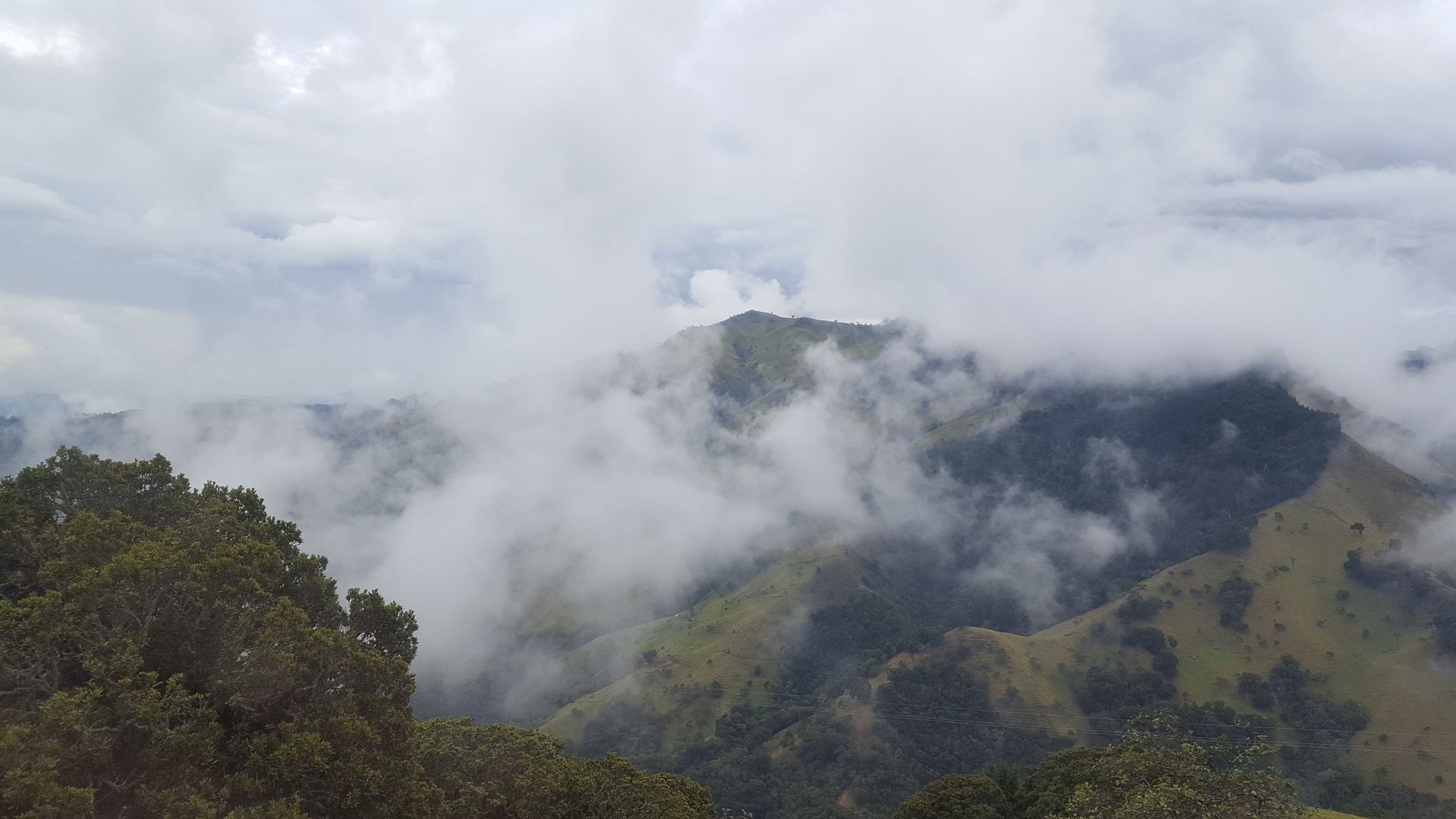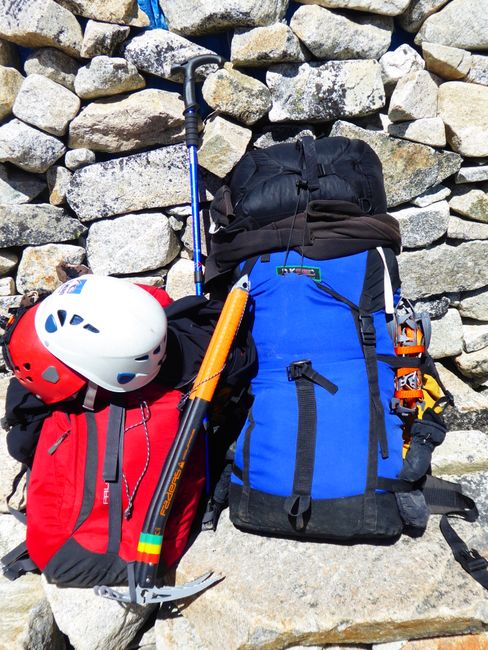
goingsouth-america
vakantio.de/goingsouth-america
Galapagos - because they can
Wotae: 27.10.2018
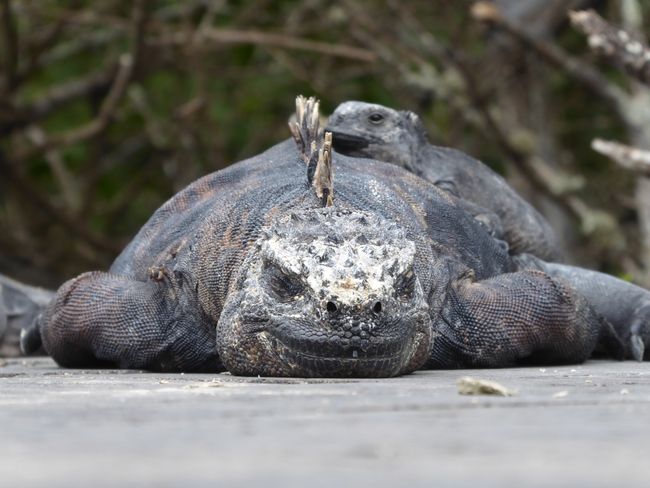
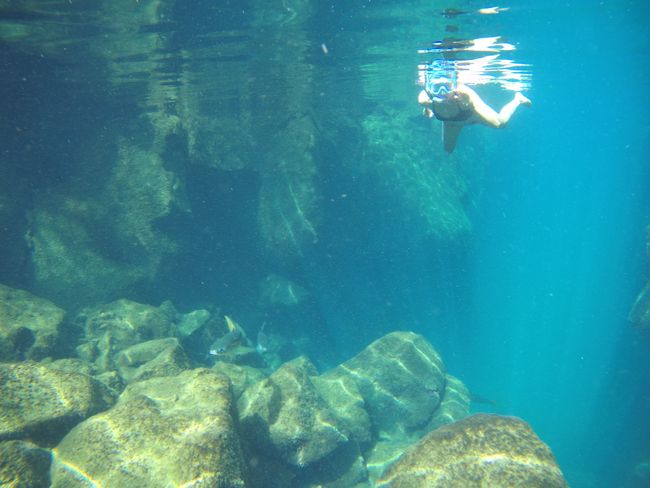
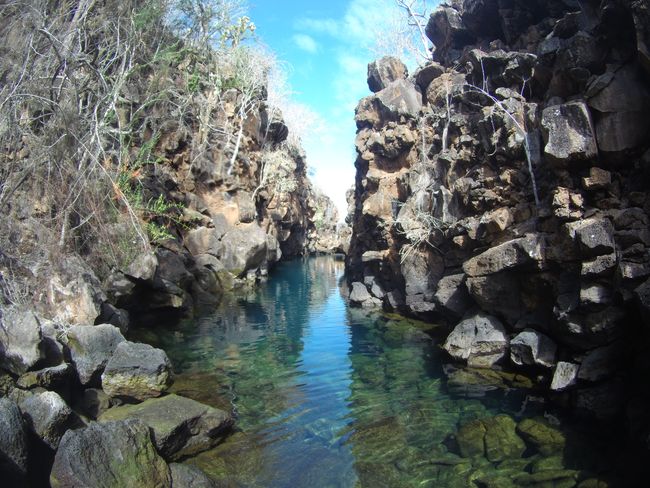
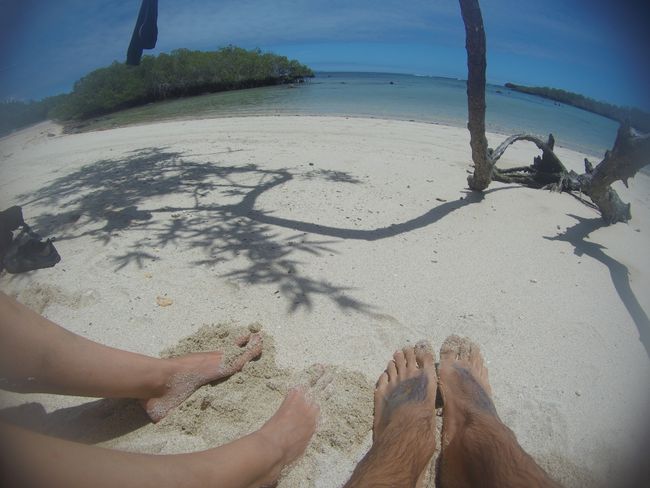
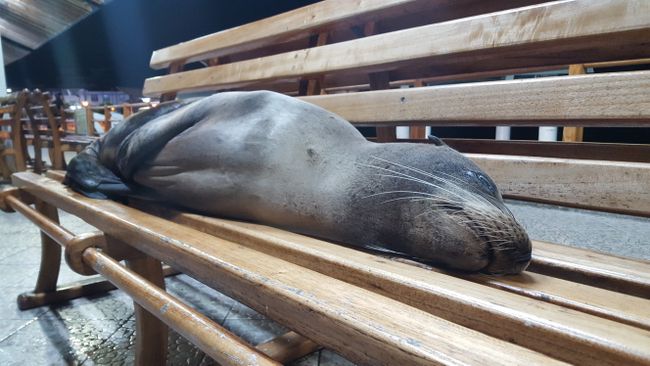
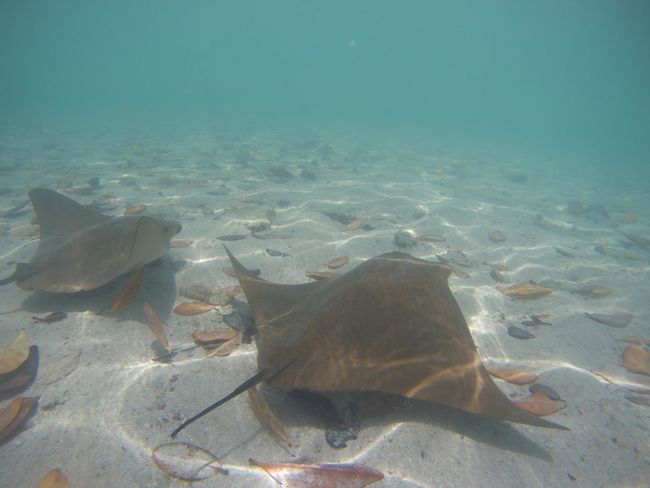
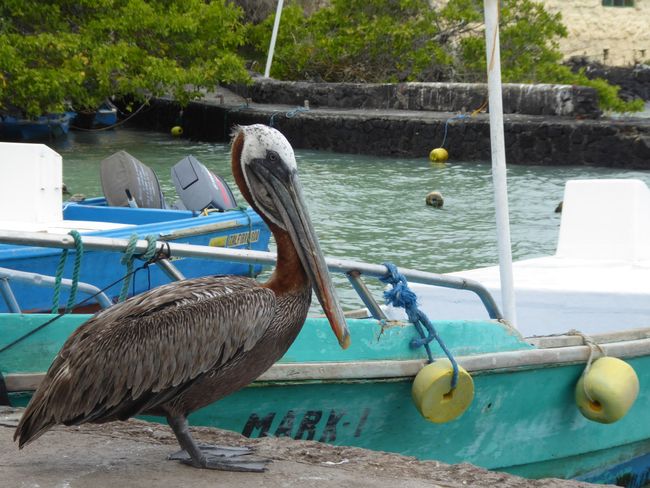
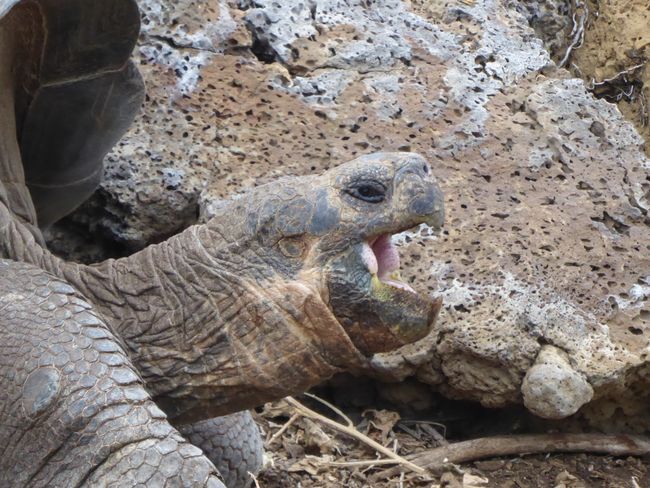
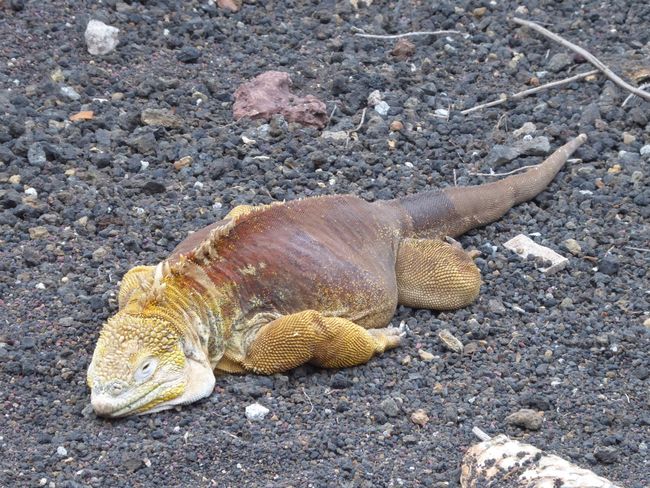
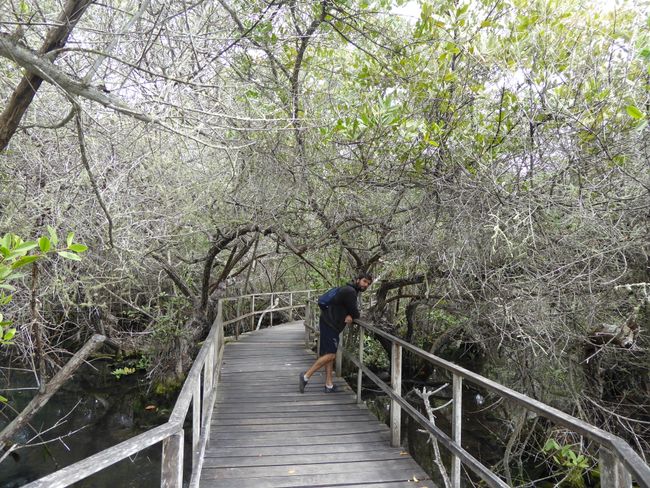
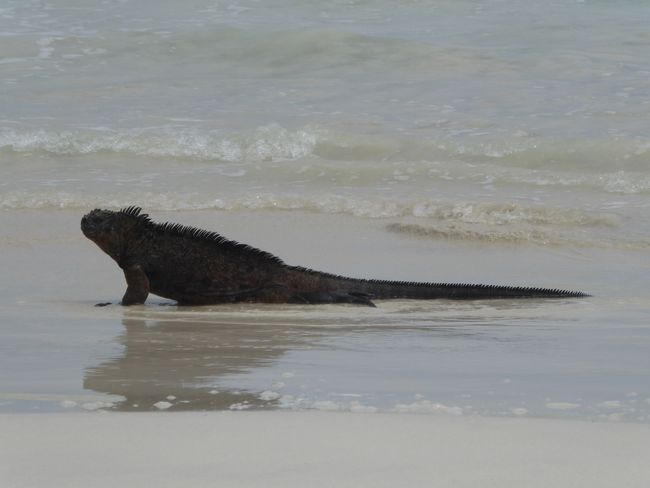
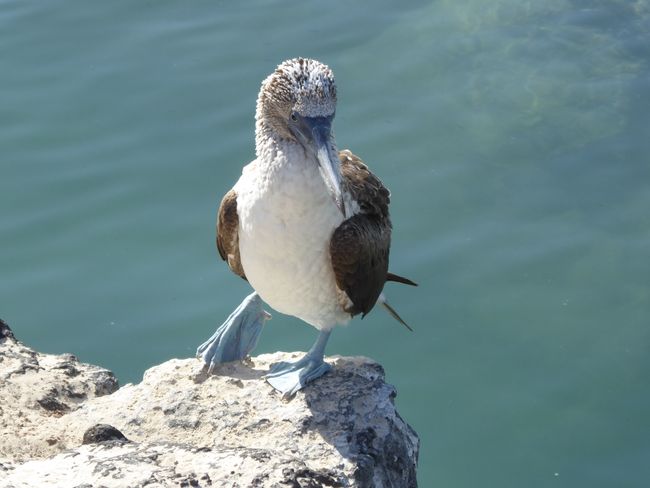
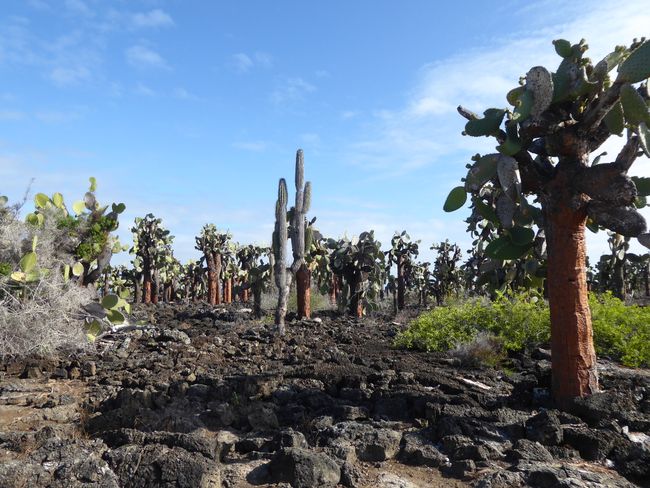
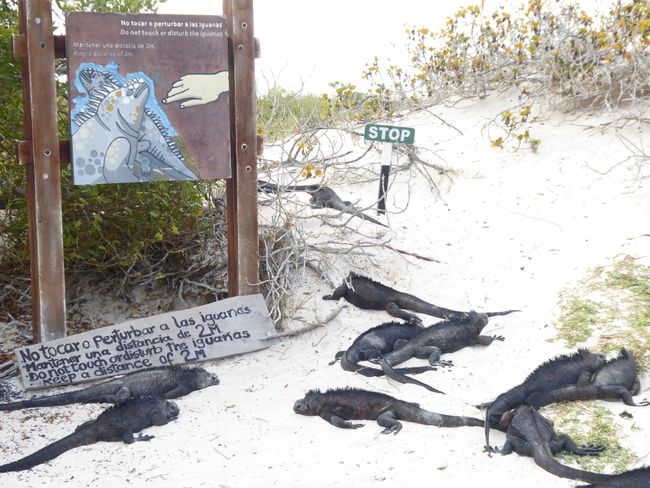
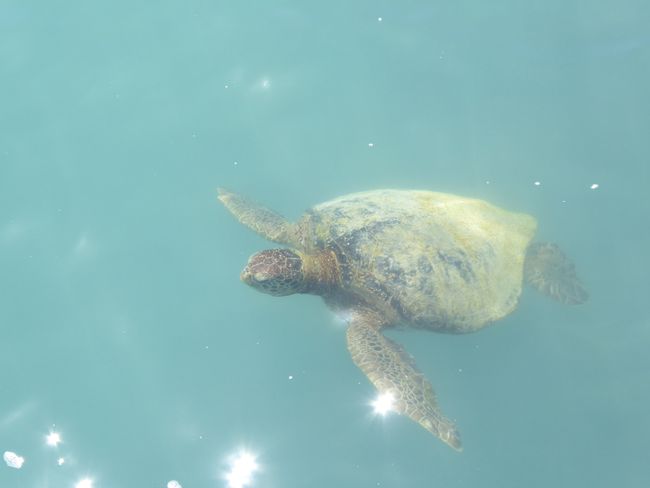
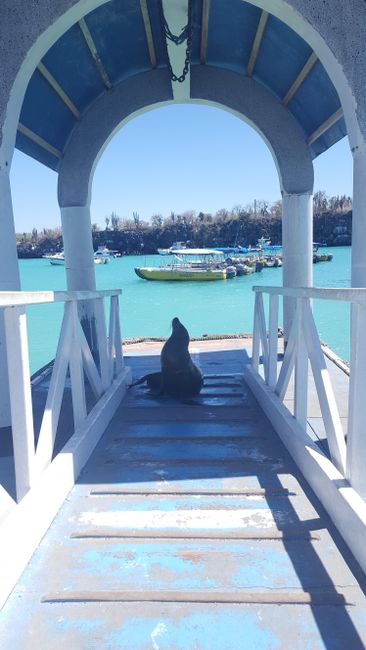
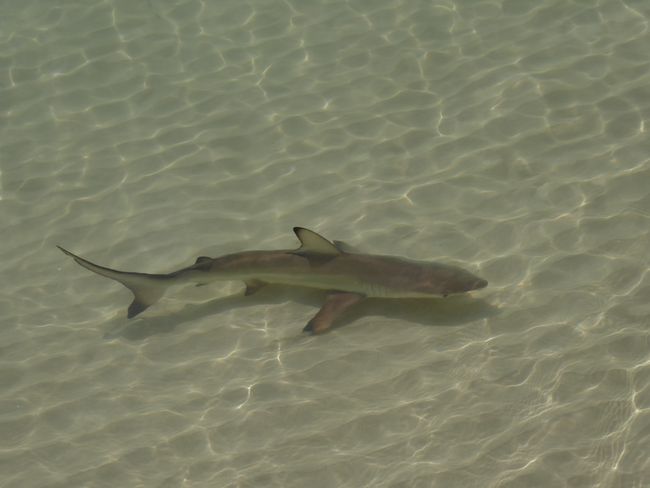
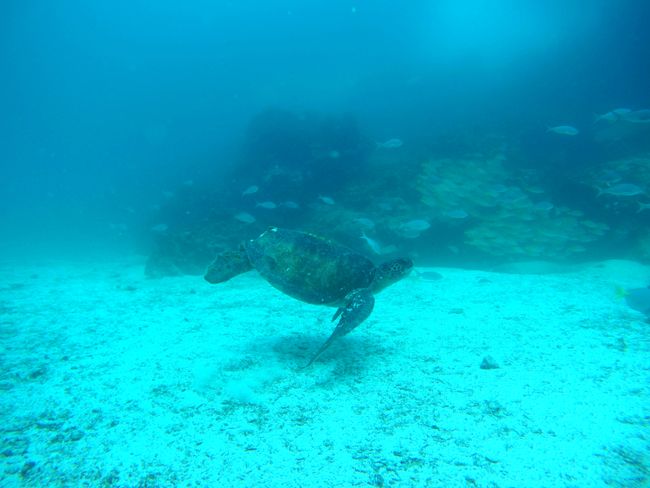
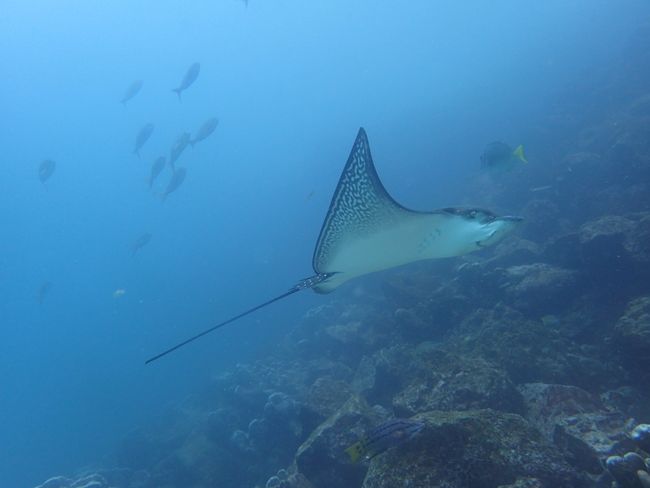
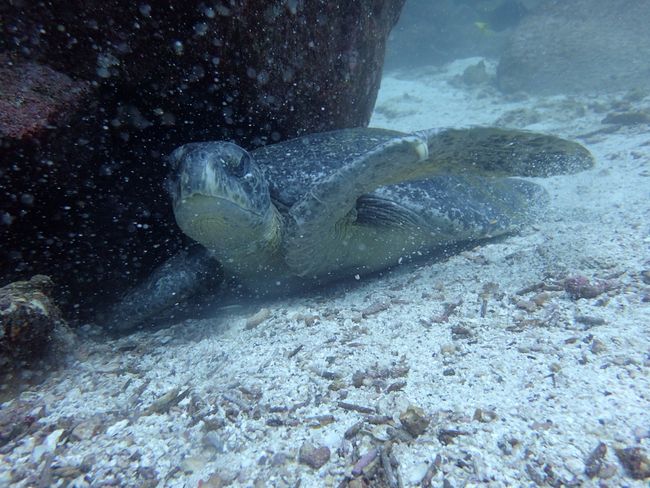
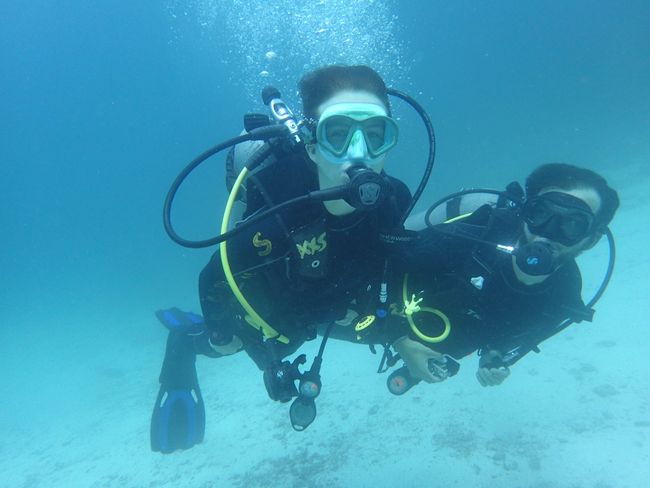
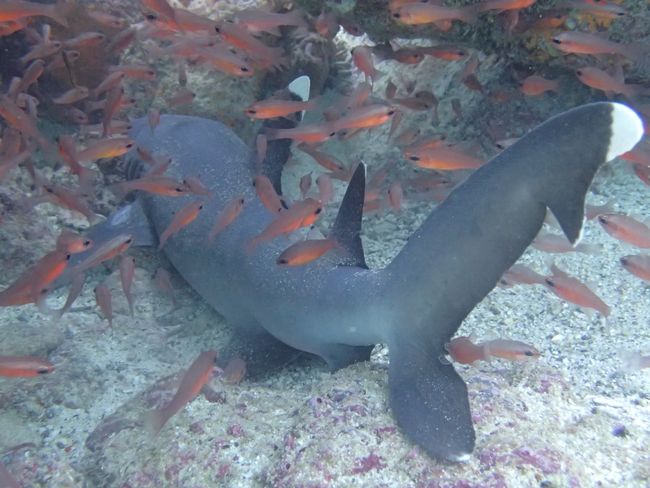
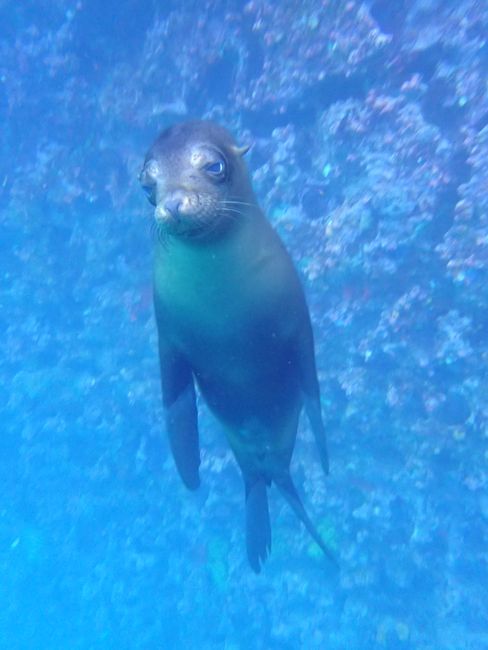
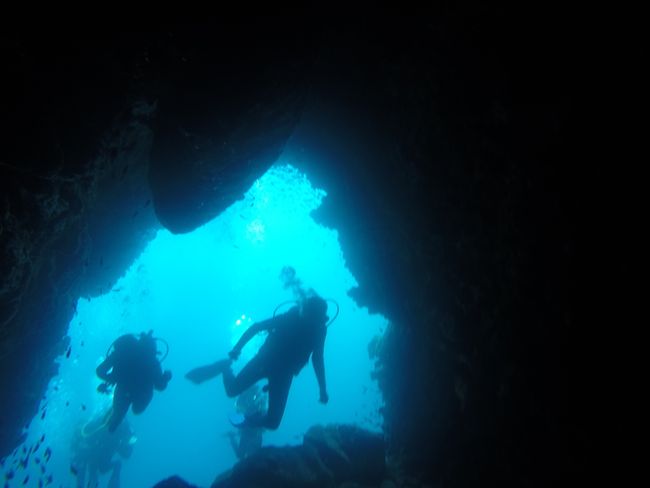
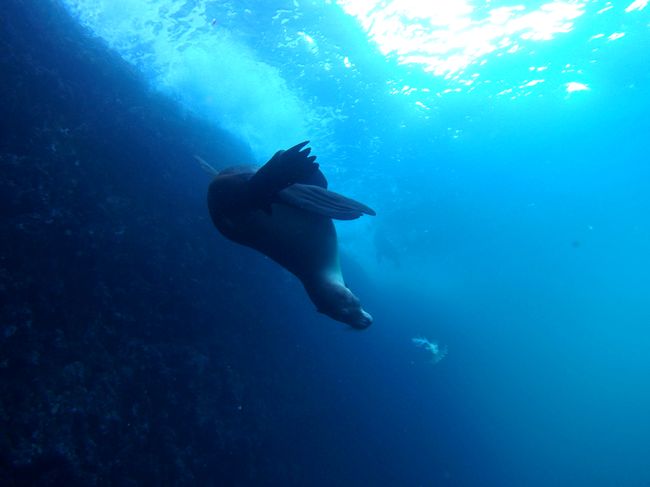
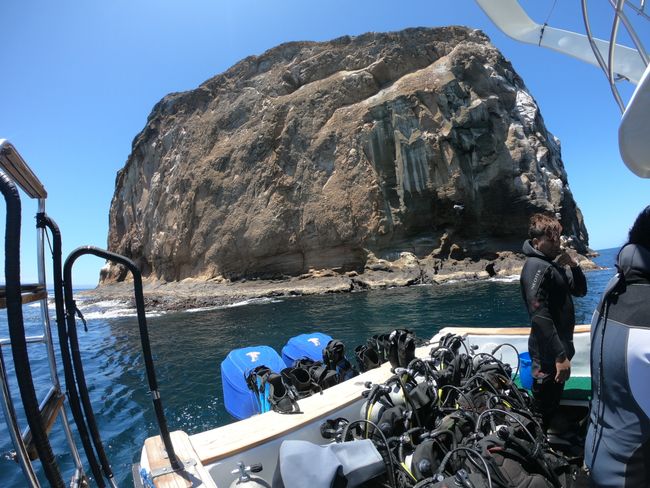
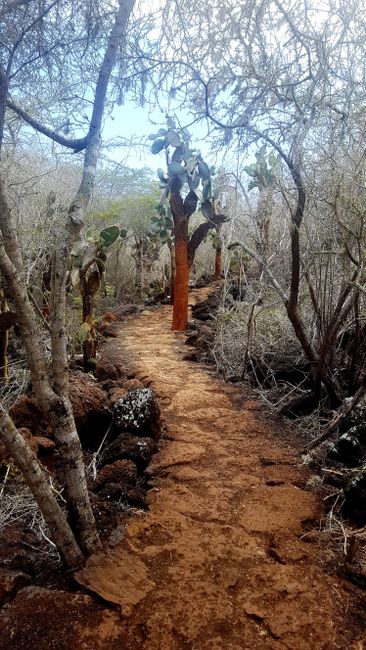
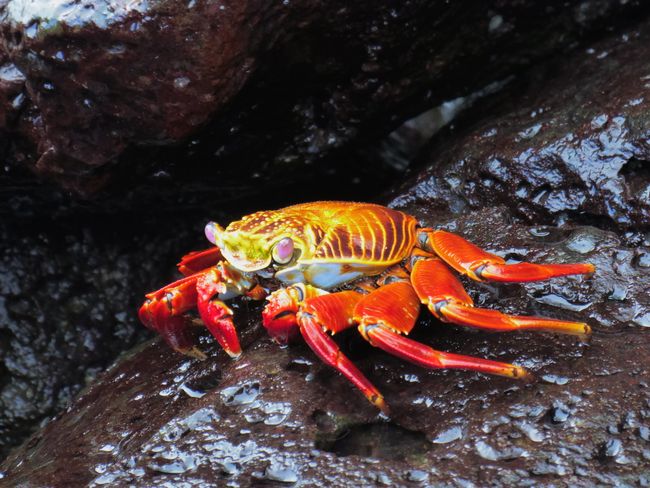
Wɔ Nudɔdɔ na Nyadzɔdzɔgbalẽ
UPDATE: Under 'Map' (see entries and photos) you can now track our travel route geographically.
UPDATE: Our inquiries with Avianca regarding ticket refunds have been partially processed. Carsten's was approved, Annika's, for some reason, was not. We will keep following up.
October 23, 2018
We start the day relaxed with a hearty breakfast, fearing that all our food will be confiscated by customs. The entry requirements for the Galapagos Islands are quite strict to preserve the fragile ecosystem from invasive species. We try Uber again and it actually works perfectly. At the airport, all our luggage goes through strict inspection. Annika breathes a sigh of relief as she is even allowed to bring her henna hair dye powder. We pay the $20 per person fee to obtain an entry and exit card for tourism control. So far, everything is going smoothly.
But then comes the big shock. At check-in, we are asked to go to the airline office counter because there is an issue with our tickets. We had heard some stories about suspicious ticket sales before. Apparently, their website frequently sells tickets for locals as tourist tickets, which are much cheaper. At the counter, we are unpleasantly surprised to find out that we have to pay the difference to the current tourist ticket price. We have checked this in advance. We have tourist tickets. However, we are explained in a very complicated manner that we have to pay a minimum value per ticket, which we do not reach with our tickets purchased in Germany. We have to pay the difference - $300! We are told to contact our travel provider to get the money refunded. Feeling somewhat overwhelmed, we have no choice but to pay. Otherwise, our flight will be canceled. It doesn't seem to be entirely fair here, but we have no other option at the moment. It seems that we always have some kind of trouble whenever we are at an airport.
A bit annoyed (especially Annika), we embark on the nearly two-hour flight. At the airport, the stamp in our passport costs us another $100. This also serves as the entrance fee to the national park, used for its maintenance and protection.
In Baltra, the next surprise awaits us. The airport is actually on another island. To get to the capital of the island, we have to take a bus to the ferry, then the ferry to the next island, and finally another bus to Puerto Ayora. According to various travel reports, the entire route used to cost a total of $4 until about 3 months ago. Now we are at $11 per person. That's what you call an expanded profit margin. But again, we have no choice. If you want to experience Galapagos, you have to pay. Because they can.
But enough complaining. They really can. One can easily imagine how Darwin arrived here in 1831 with his HMS Beagle and was completely overwhelmed. You have to be careful not to step on any of the wild creatures. Sunbathing is a big thing here. This is probably what the masses of tourists at Ballermann Beach look like from a bird's eye view. It's not always easy to keep the obligatory 2-meter distance when a sea lion swings in front of you on the pier and blocks your way. Sometimes you have to climb over railings like a Ninja Warrior.
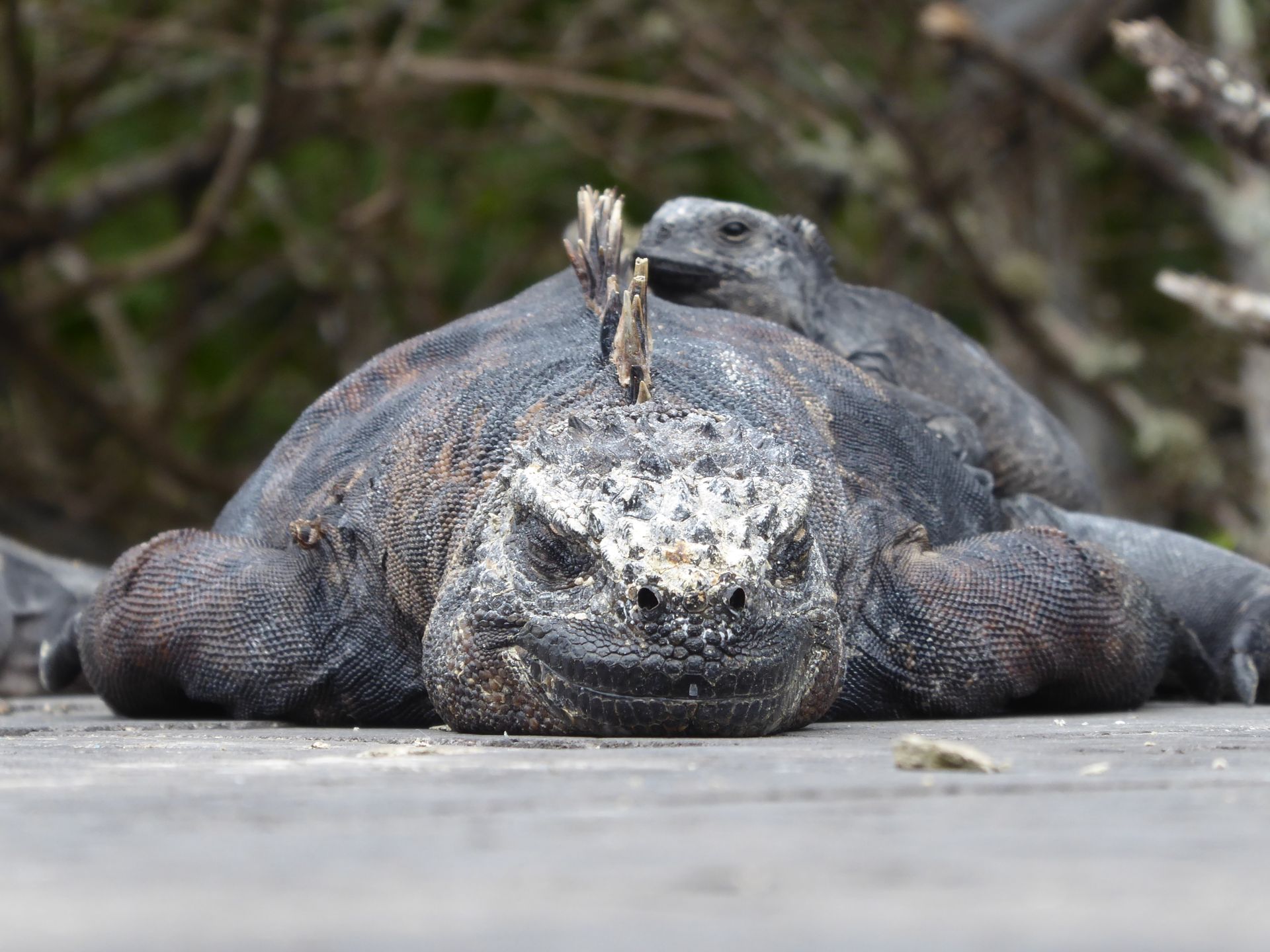
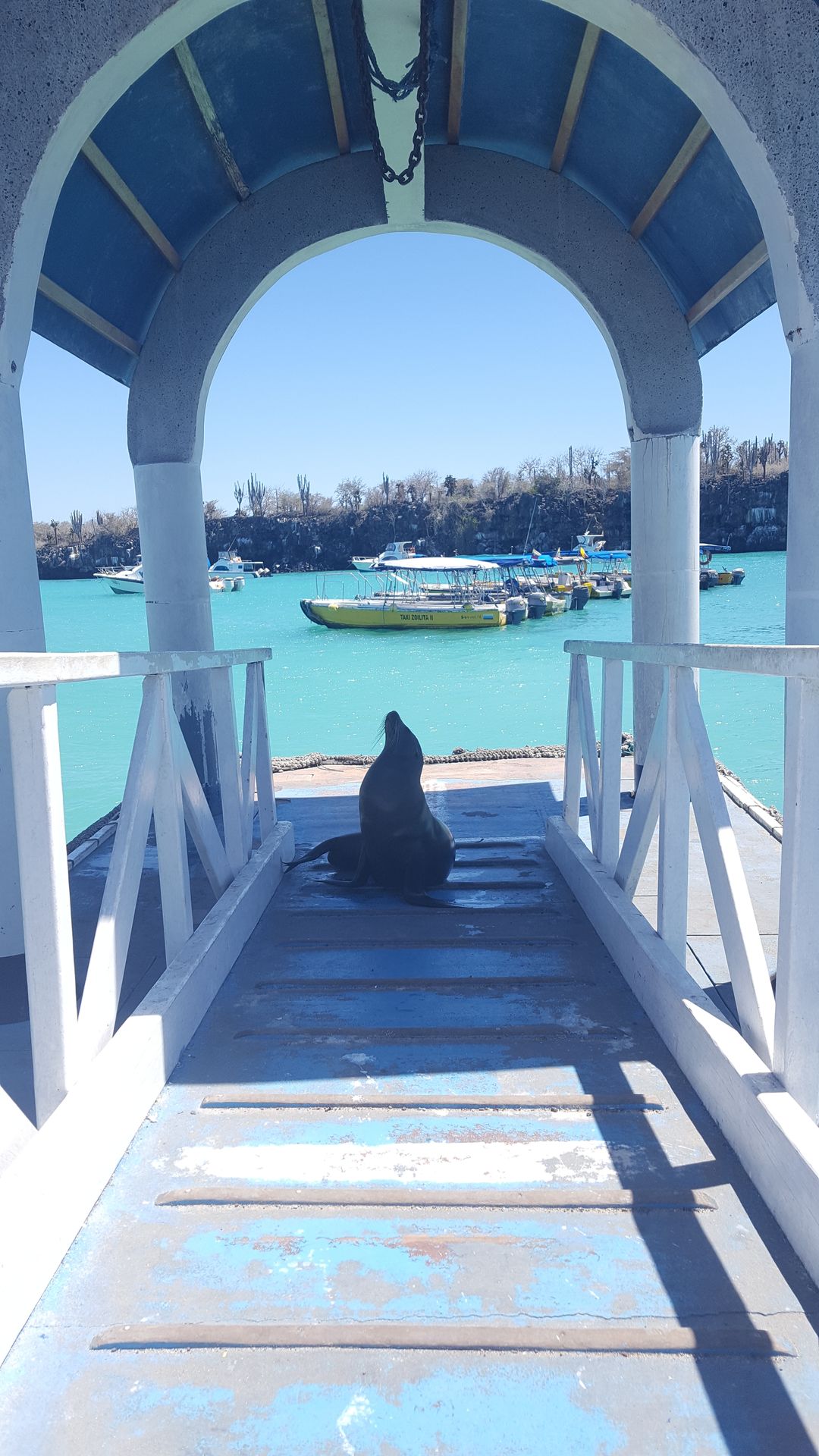
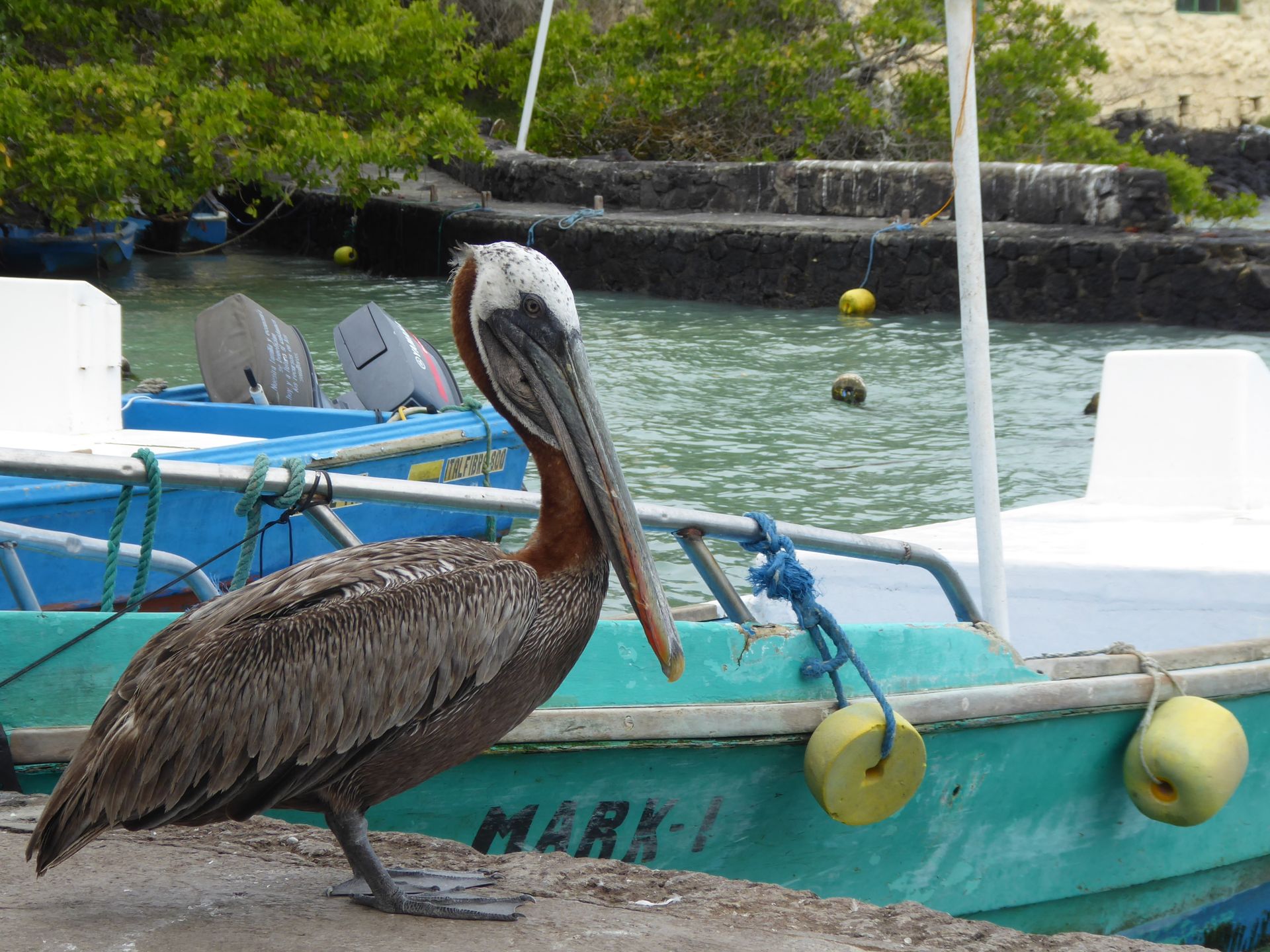
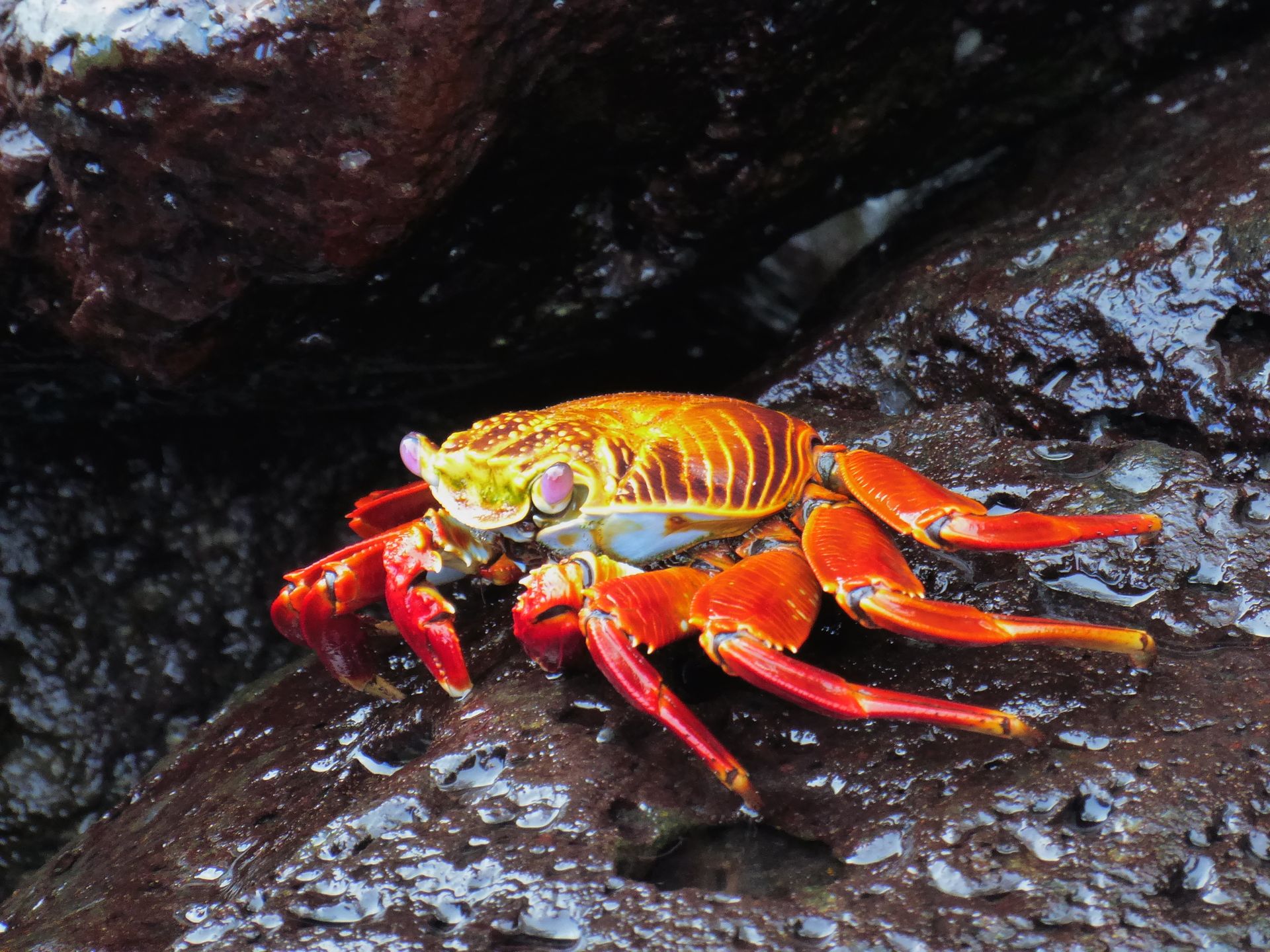
Due to renovations, we are transferred to a much nicer hotel with a small swimming pool, huge rooms, and a superb breakfast buffet. We spend our day with a walk through the town and visit the Darwin Research Station, which also serves as a rescue center for orphaned turtles and poorly buried eggs. Carsten takes the first plunge into the cold water. While shopping at the supermarket, we accidentally come across Alice, who accompanied us on our jungle adventure. Somehow, it seems that the world doesn't have enough extras for the drama of life, constantly recycling supporting roles. Together, we end the evening at the pier, watching the sea lions who have chosen various park benches for their nap.
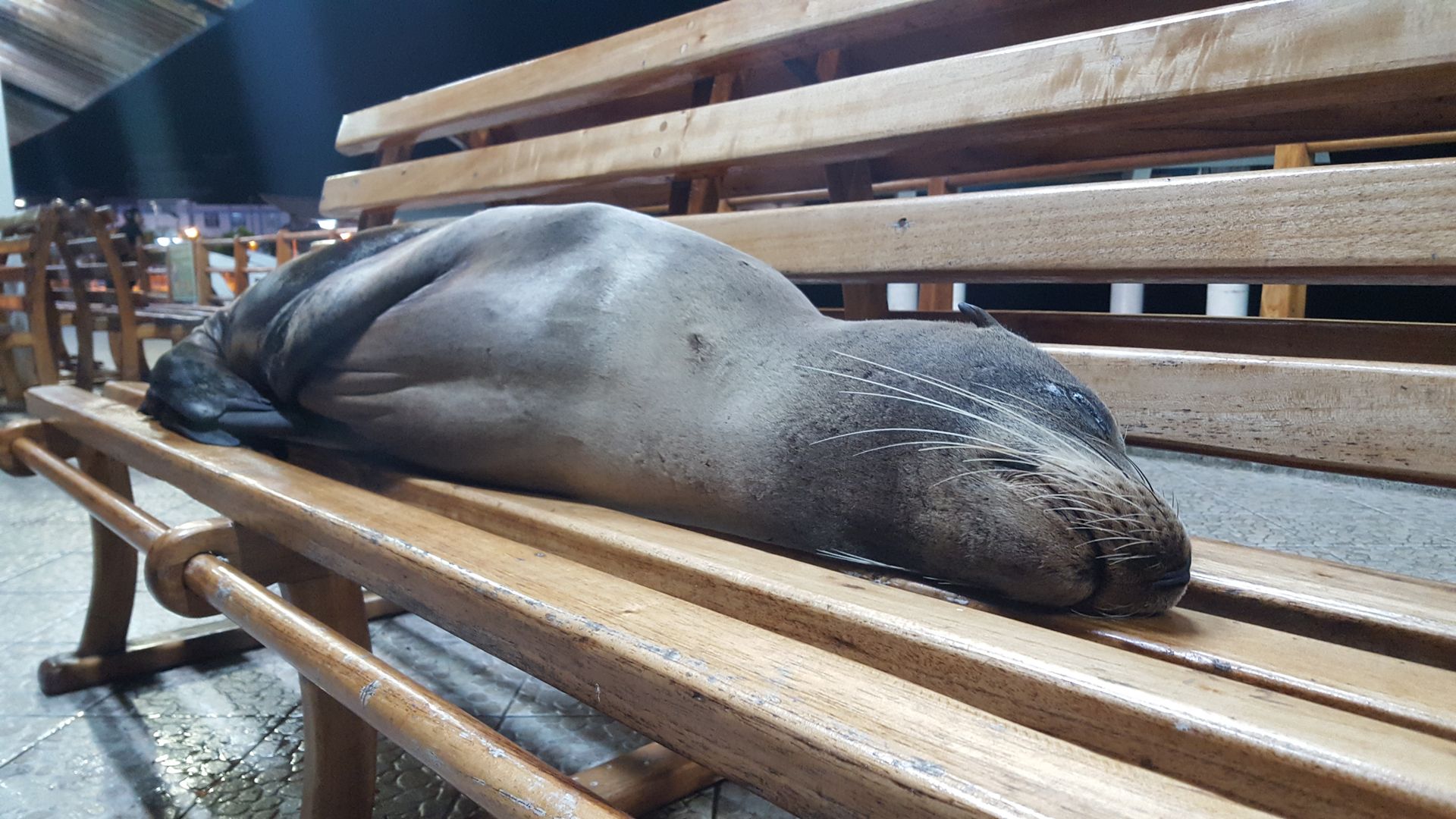
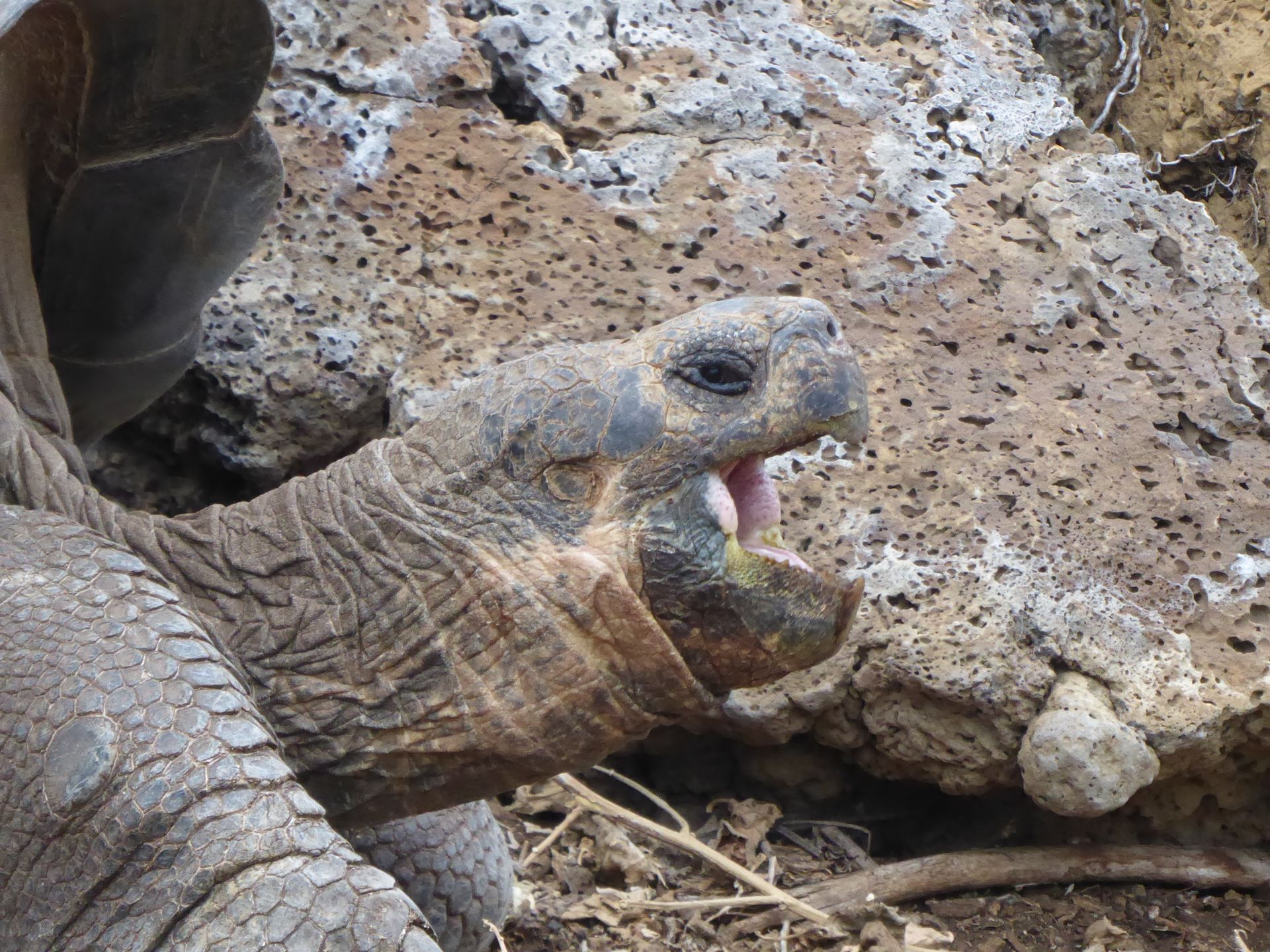
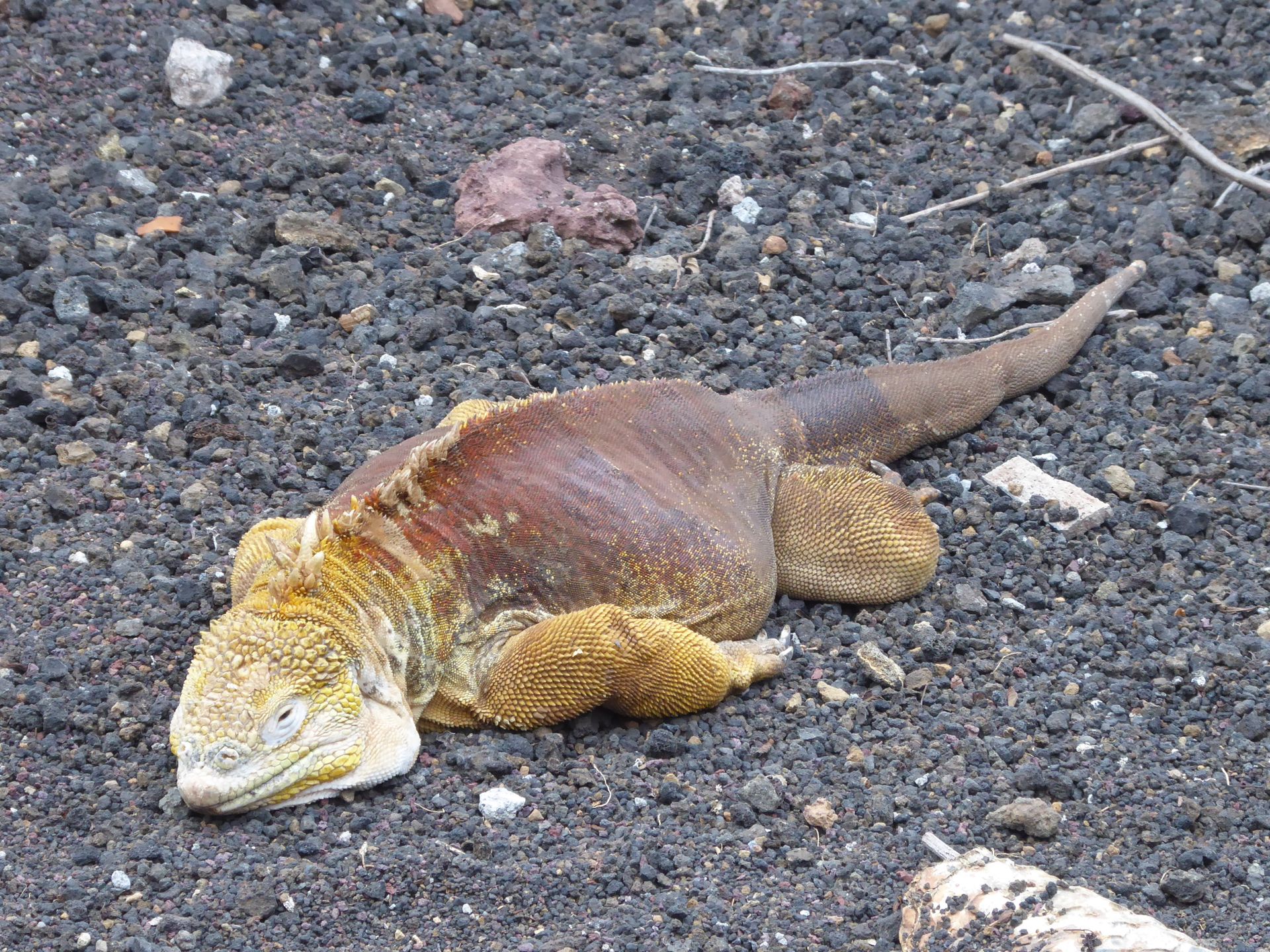
October 24, 2018
We sleep in for a while. The weather allows us to pull the covers over our heads and turn over once more. After a hearty breakfast, we head to the mangroves and 'Tortuga Bay', the turtle beach. The path leads along a roughly paved path, almost 40 minutes through a cactus forest. It feels so surreal, almost like the Snake Way from DragonBall. At least that's what Carsten thinks.
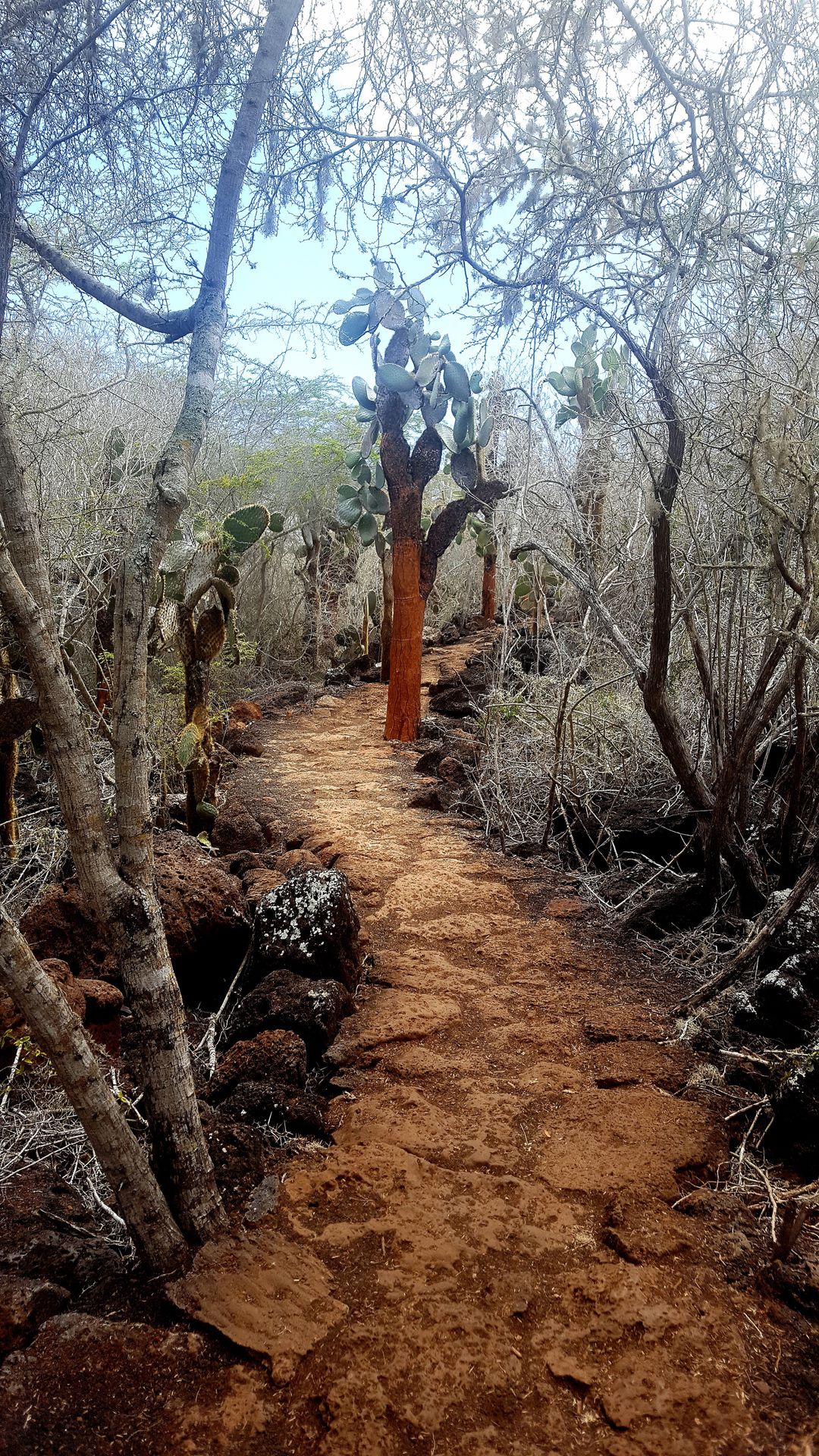
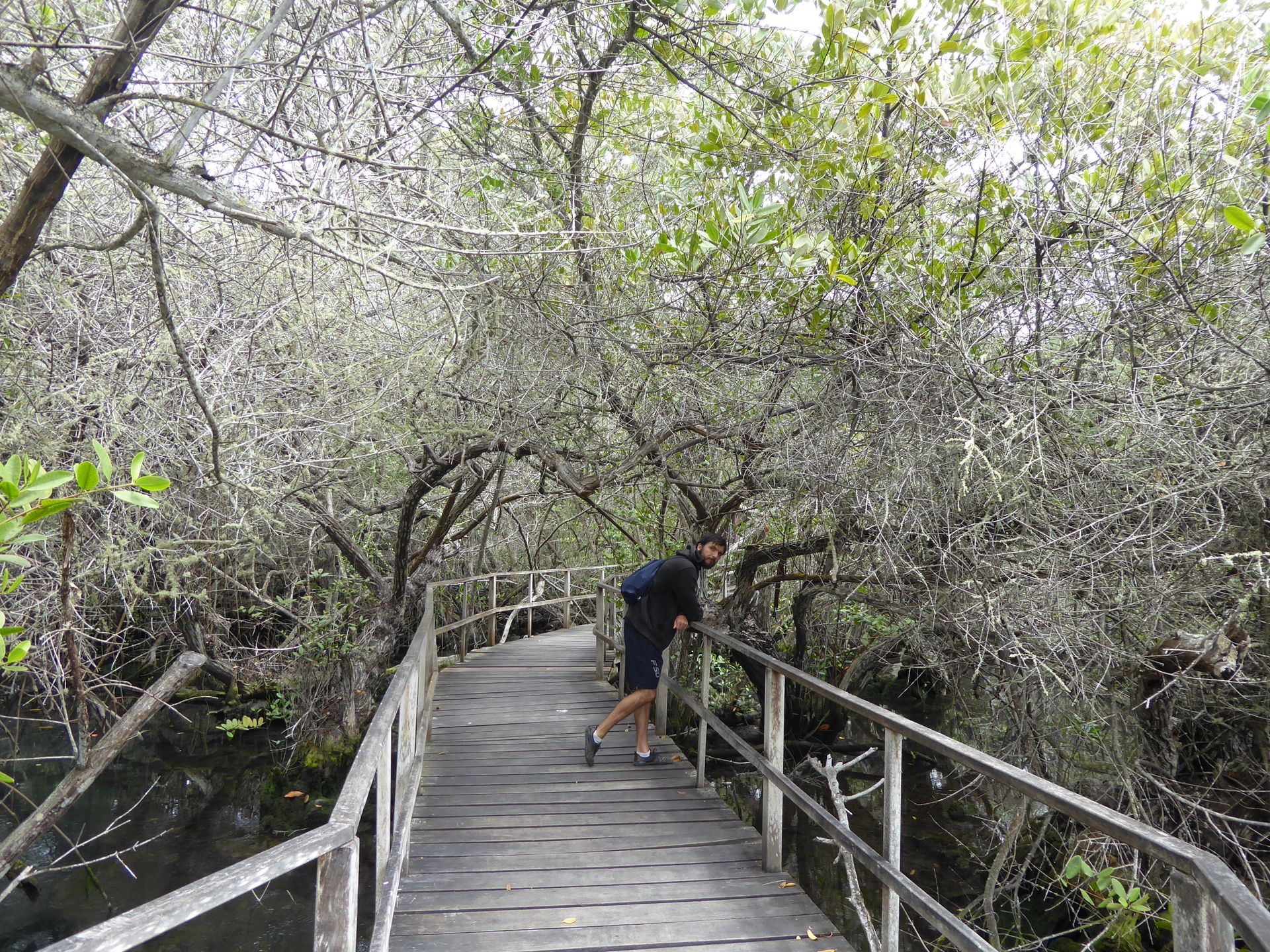
Arriving at the beach, we enjoy the fine sand between our toes and continue walking towards the lagoon. After a few meters, a black 'thing' starts swimming towards us. A big marine iguana comes ashore right beside us and finds a spot to sunbathe. Just a few meters away, its whole family is lying there, ready to block our way. Around 30 animals are basking on the warm sand, warmed by the now shining sun.
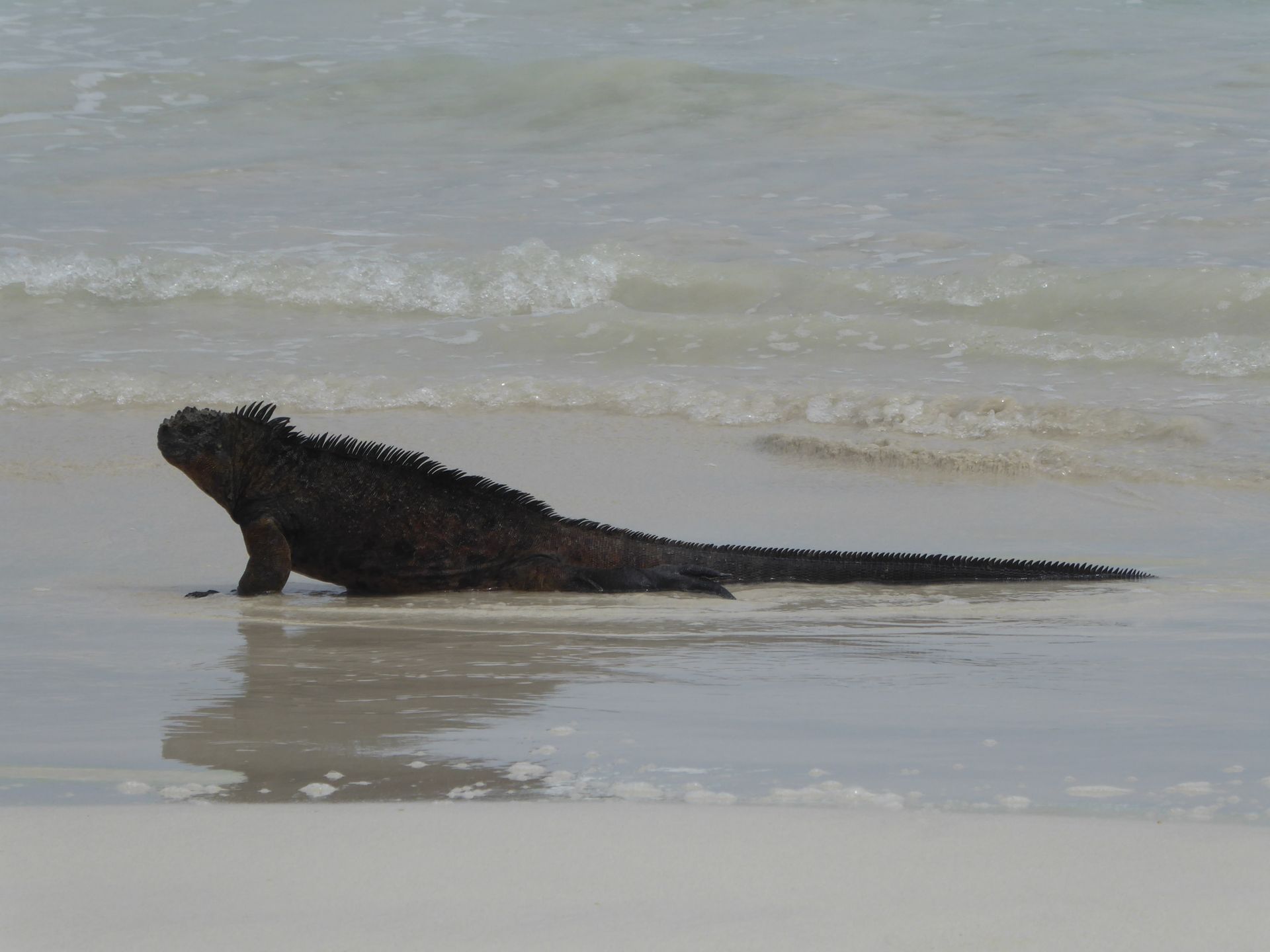
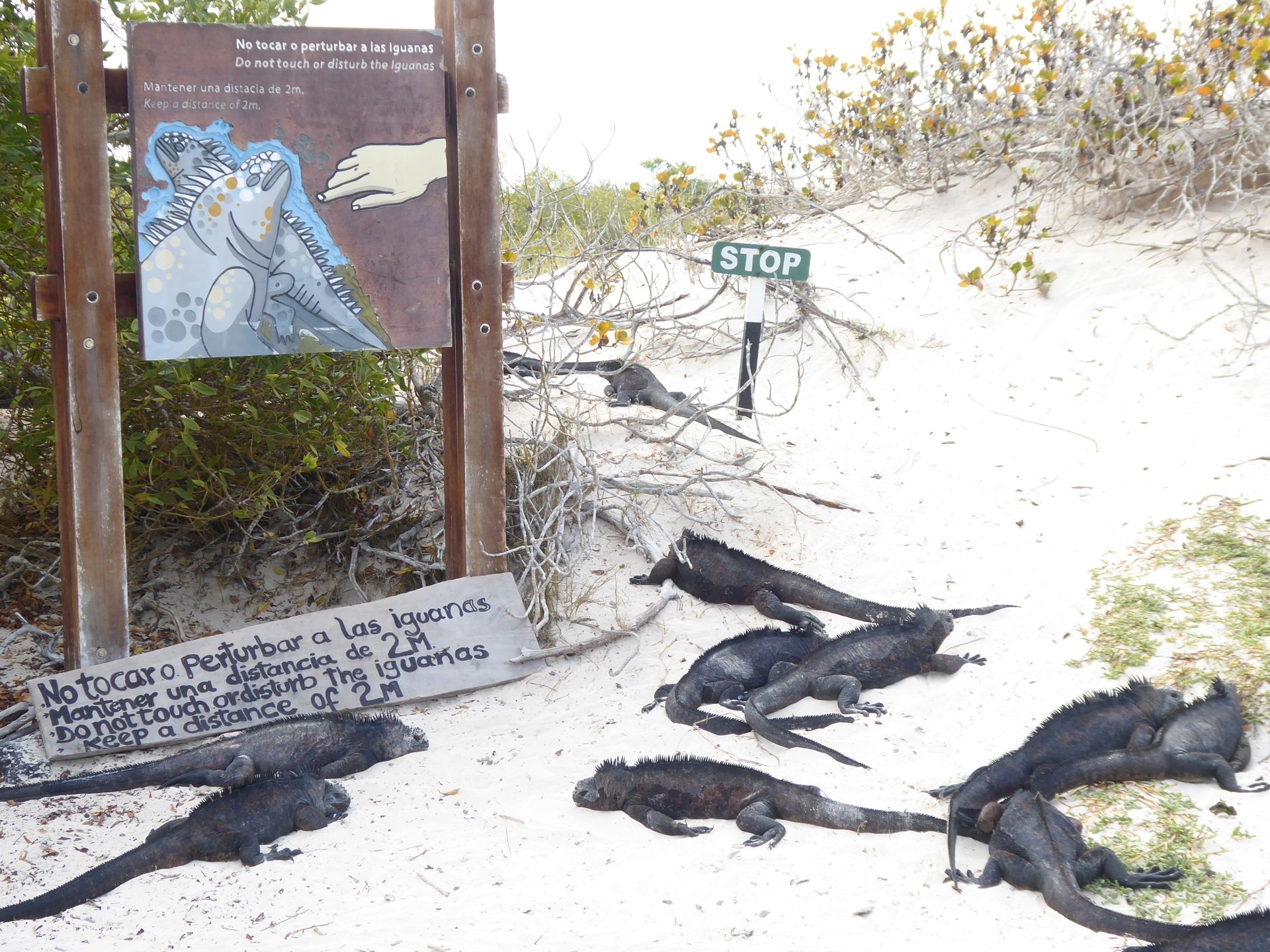
We set up our lunch table at the lagoon, while brave pelicans dive into the shallow area to catch fish. Small pufferfish swim around our feet along with baby blacktip reef sharks. An incredible experience.
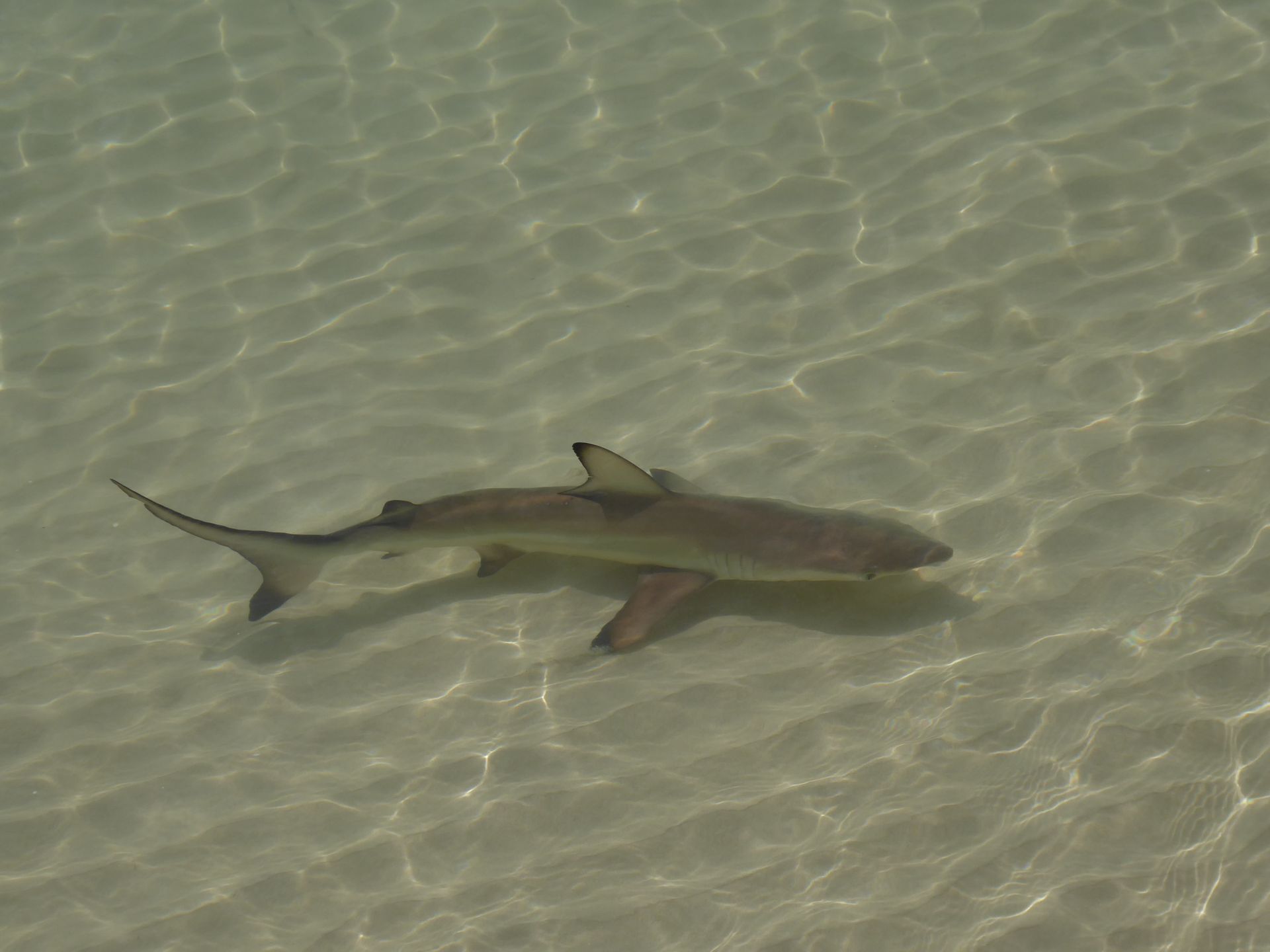
The lagoon is separated from the rough sea by small volcanic walls, so only a few waves break on the shore. We walk along this dividing line to further explore the archipelago. We encounter blue-footed boobies. They are just as cute as their name suggests. They seem completely unfazed by our presence, as does everything else here.
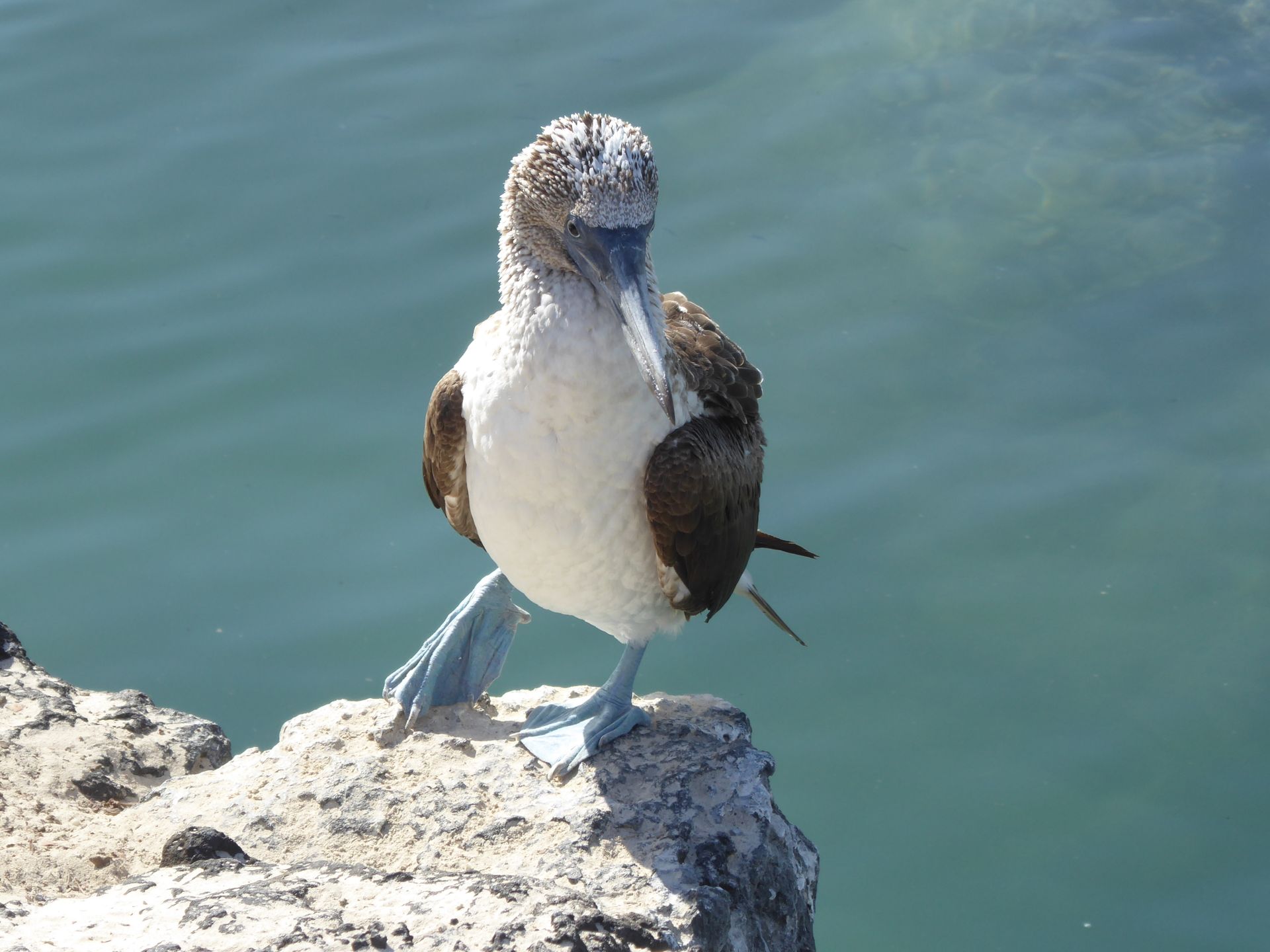
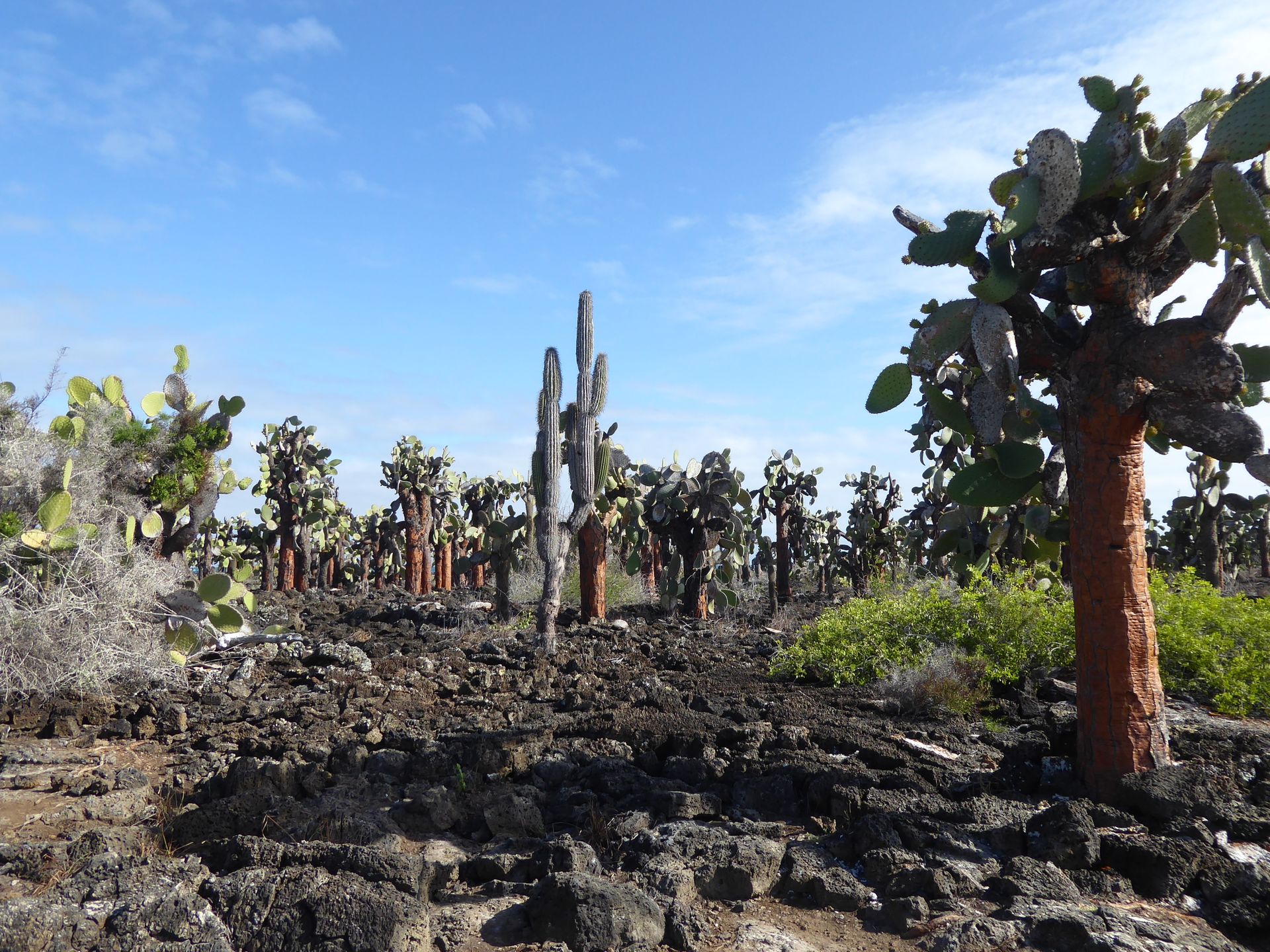
October 25, 2018
Time to go snorkeling. A water taxi takes us to 'Playa de los Alemanes' (German Beach). We don't see any Germans besides ourselves. For now, we ignore the beach. Our destination is 'Las Grietas', a water-filled volcanic crack inviting exploration. The water is cold but wonderfully clear. We can almost see the 10-meter deep bottom. Freshwater mixes with seawater from below. We move from one section to another through small rock dikes. Slippery and slimy, we slide along the rocks, where marine iguanas of all sizes are sunbathing.
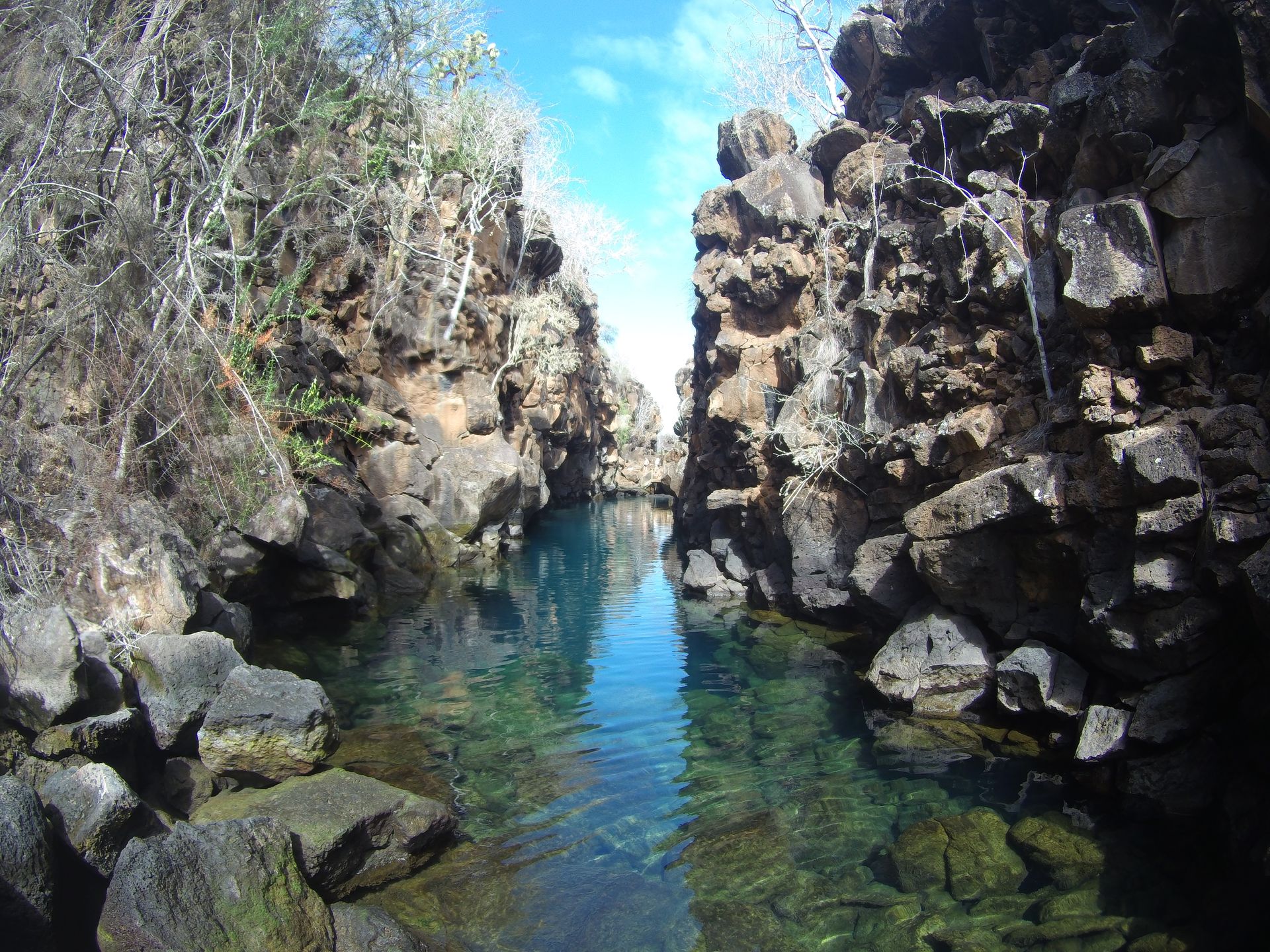
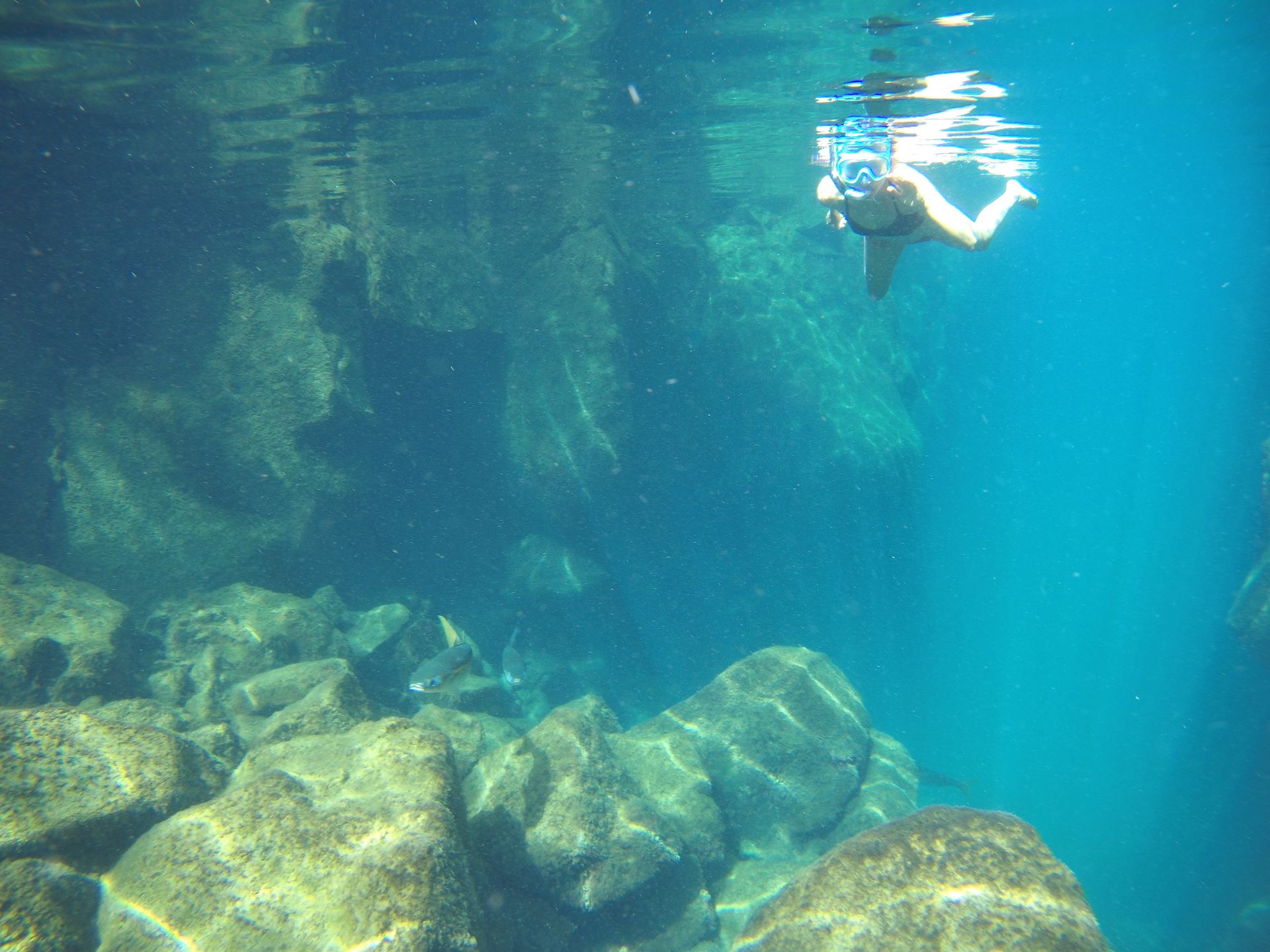
Around 11 o'clock, it starts getting crowded. The guided tours flock for the refreshing dip. We return to the beach that we previously ignored. The water has risen here, arousing our curiosity again. Snorkel gear on and into the water. After a short while, we see large school of fish that cover the colorful parrotfish while they feed. Around them swims a 1.5-meter long reef shark, observing them closely.
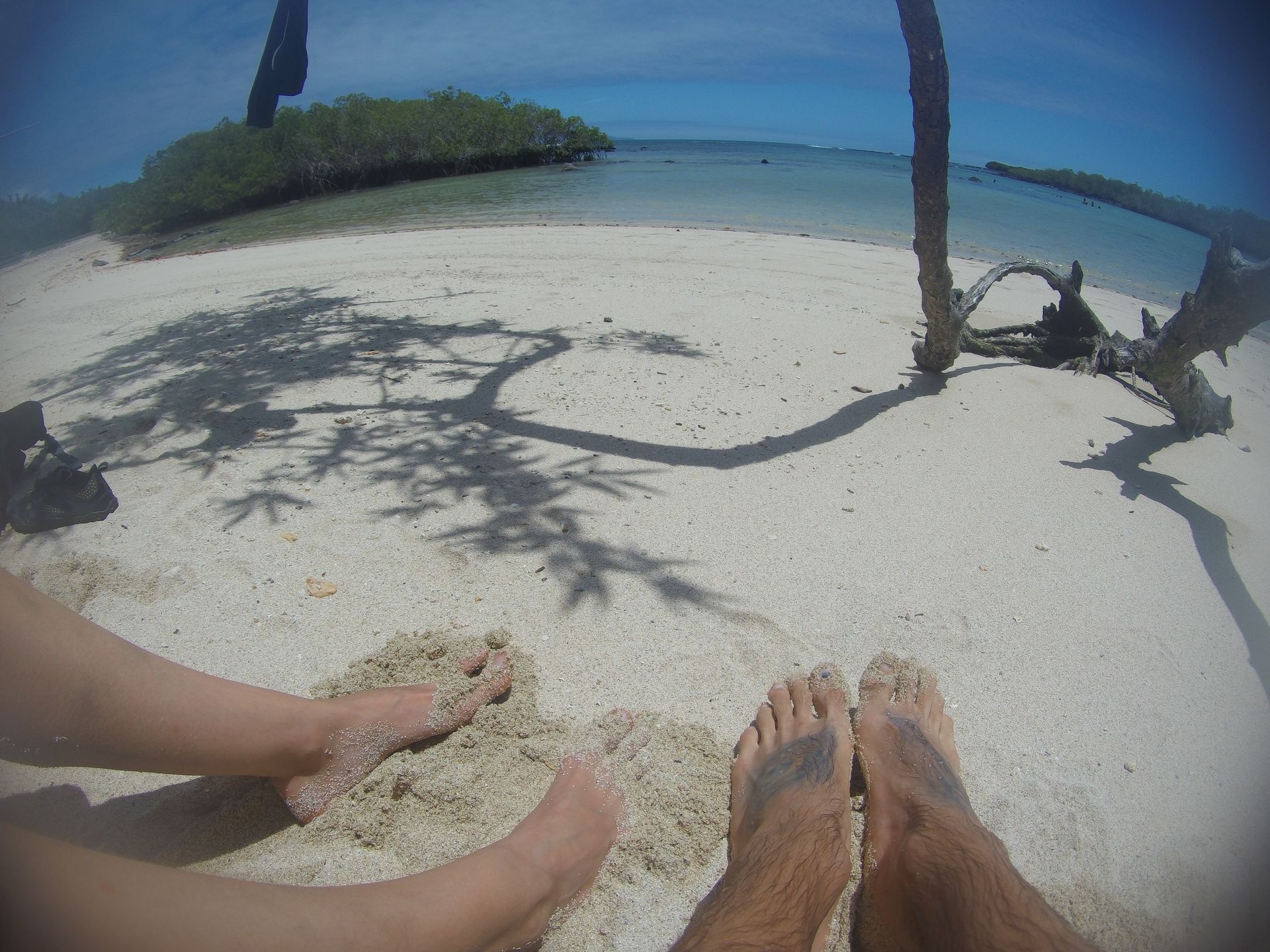
While eating, we spot shadows in the water. A closer look reveals two synchronized swimming rays.
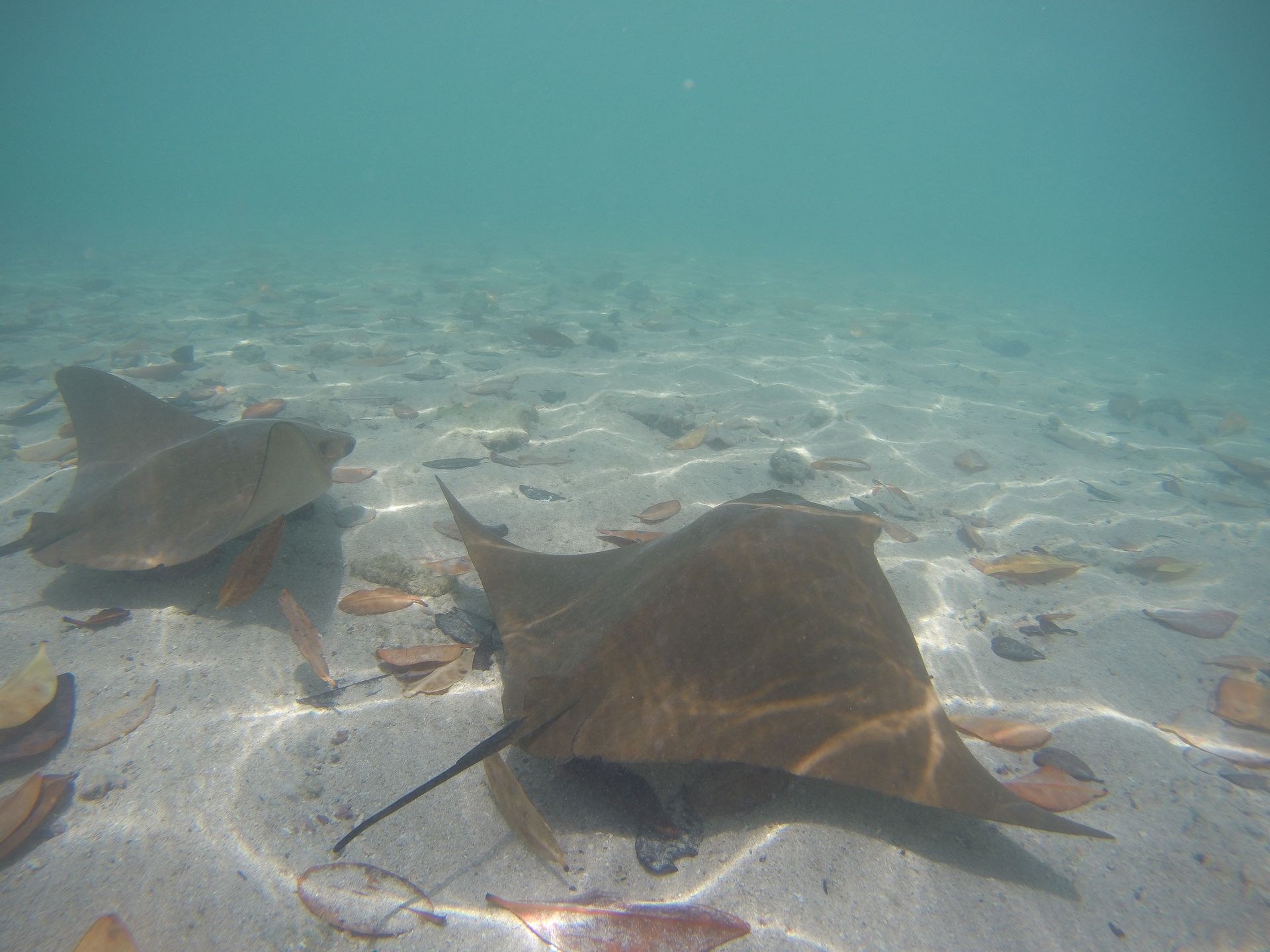
Afterward, we stroll through the town and look for diving trips for the next few days. We spontaneously decide on a good offer to go to 'Seymour North' and 'Daphne'. We have heard good things about both spots. The trip is scheduled to start the next day. We are excited.
October 26, 2018
Today, we have to get out of bed early. We are supposed to be at the dive shop at 6:50 a.m. with all our gear. With the pickup, we head north to the ferry, only this time we have our own little boat. Besides the two dive instructors and two crew members, there are 9 other interested divers.
The first stop takes us to the dive site 'Seymour North', an island in the currently rough sea. While we gear up, our boat is being tossed around quite a bit. We enter the water backwards. With such waves and two wetsuits layered on top of each other (yes, it is really necessary in the open sea), it takes us a second attempt to descend. However, we are immediately greeted by a whitetip reef shark and a turtle leisurely swimming past us. Throughout the dive, we see a spotted eagle ray, more turtles, and a variety of fish. It's actually amazing considering that the waters around the Galapagos Islands are too cold for the formation of colorful coral reefs. Underwater, we feel the sometimes very strong currents and kick our fins like crazy. We have to change direction several times.
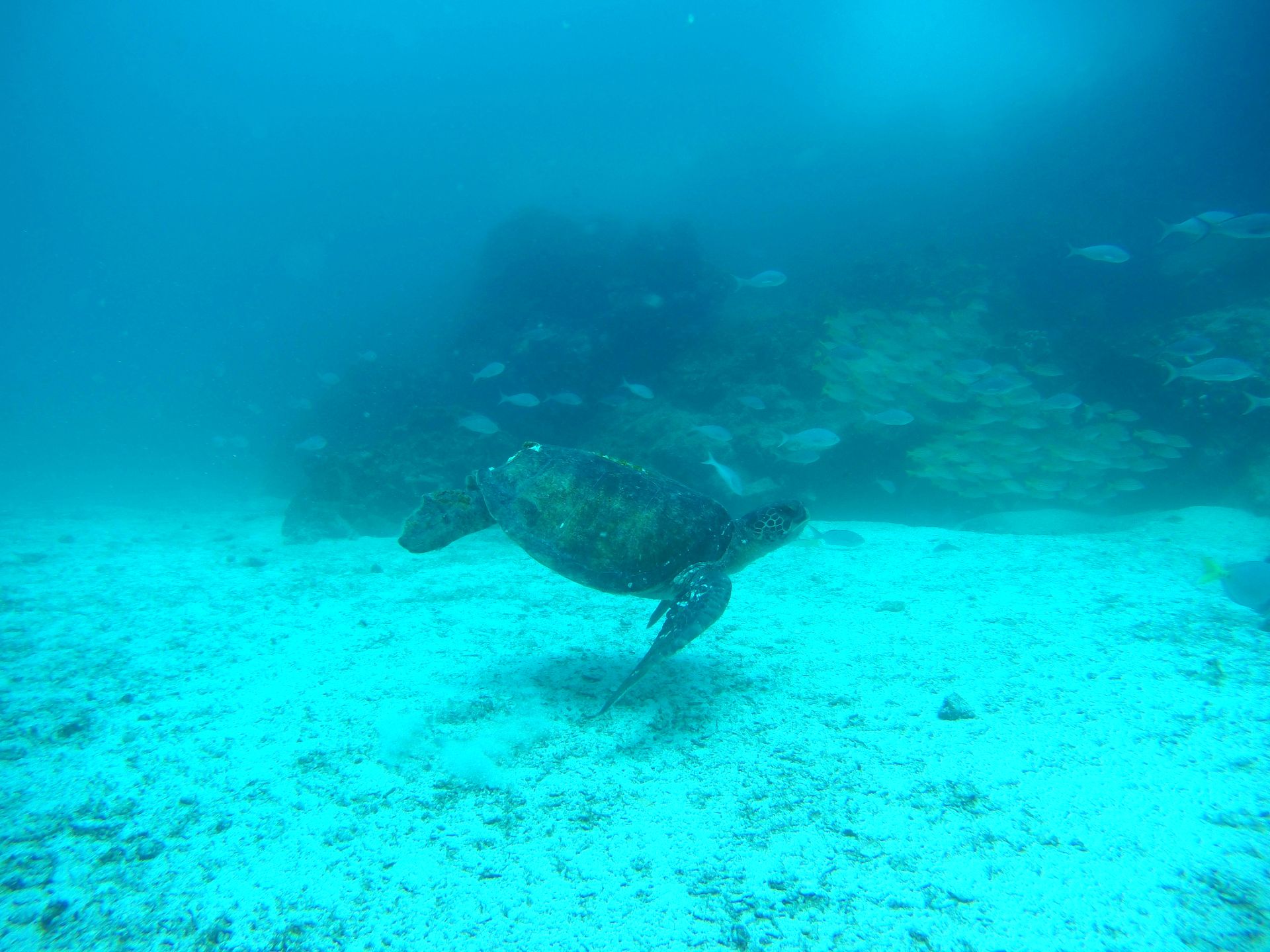
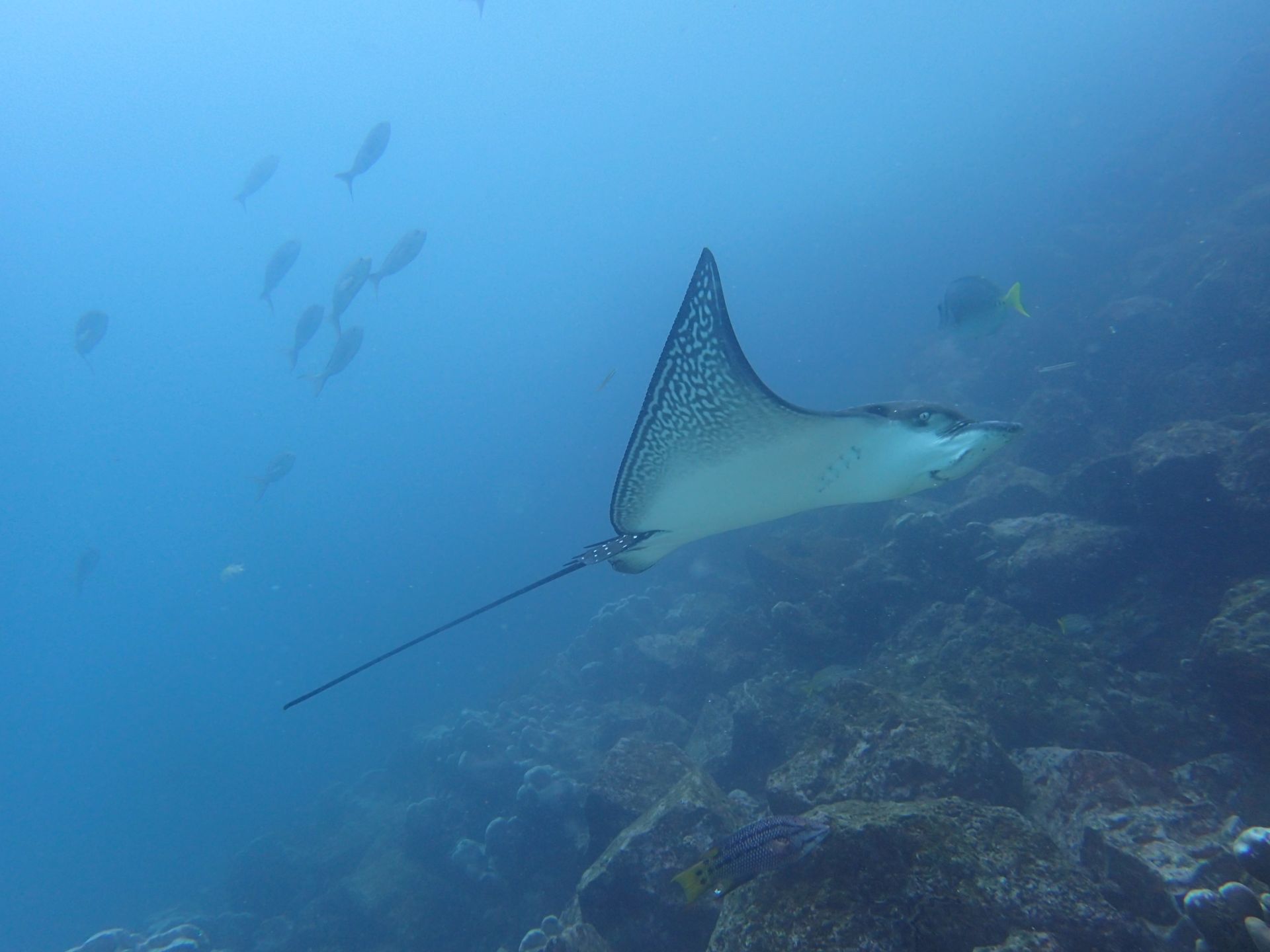
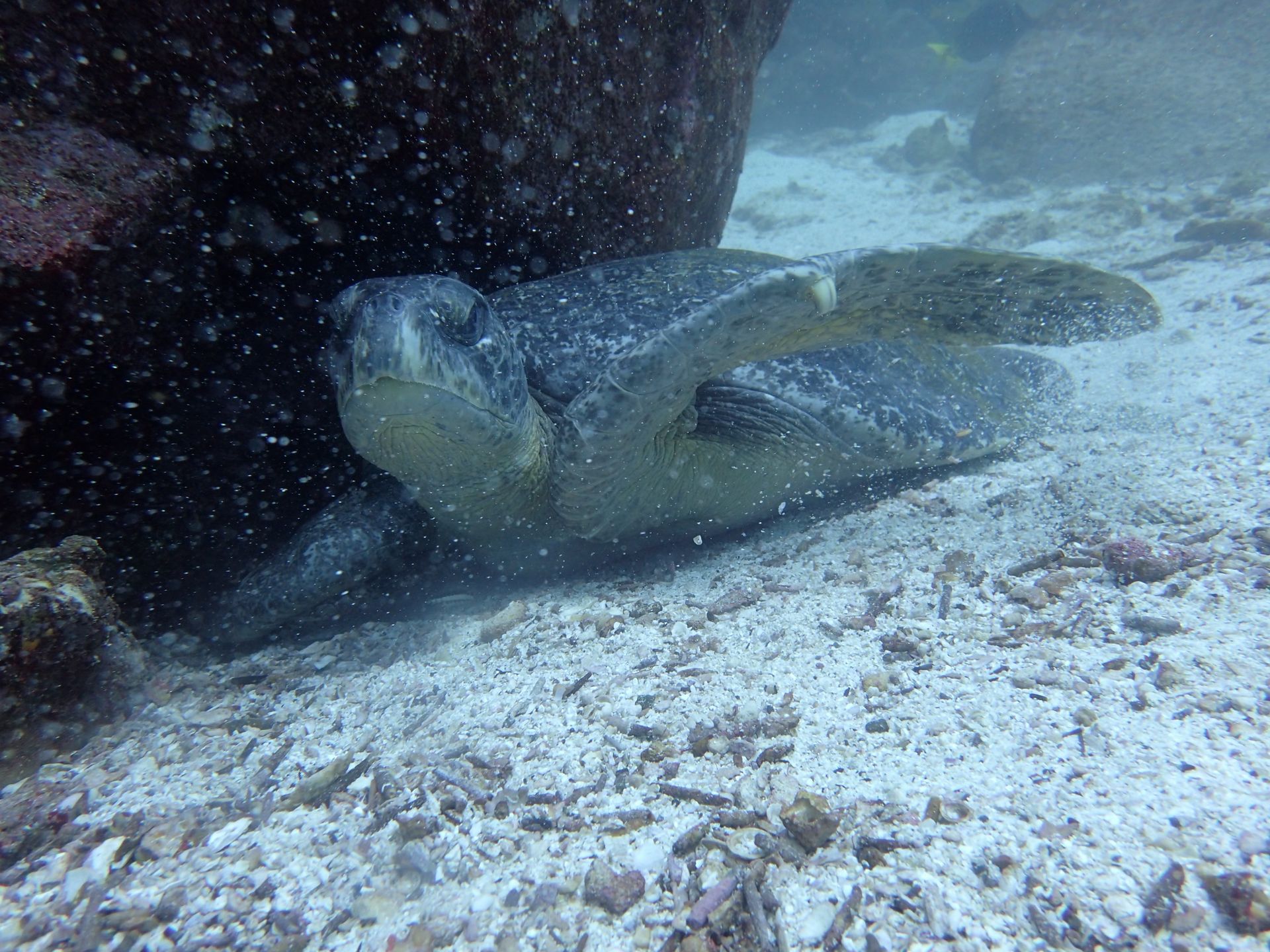
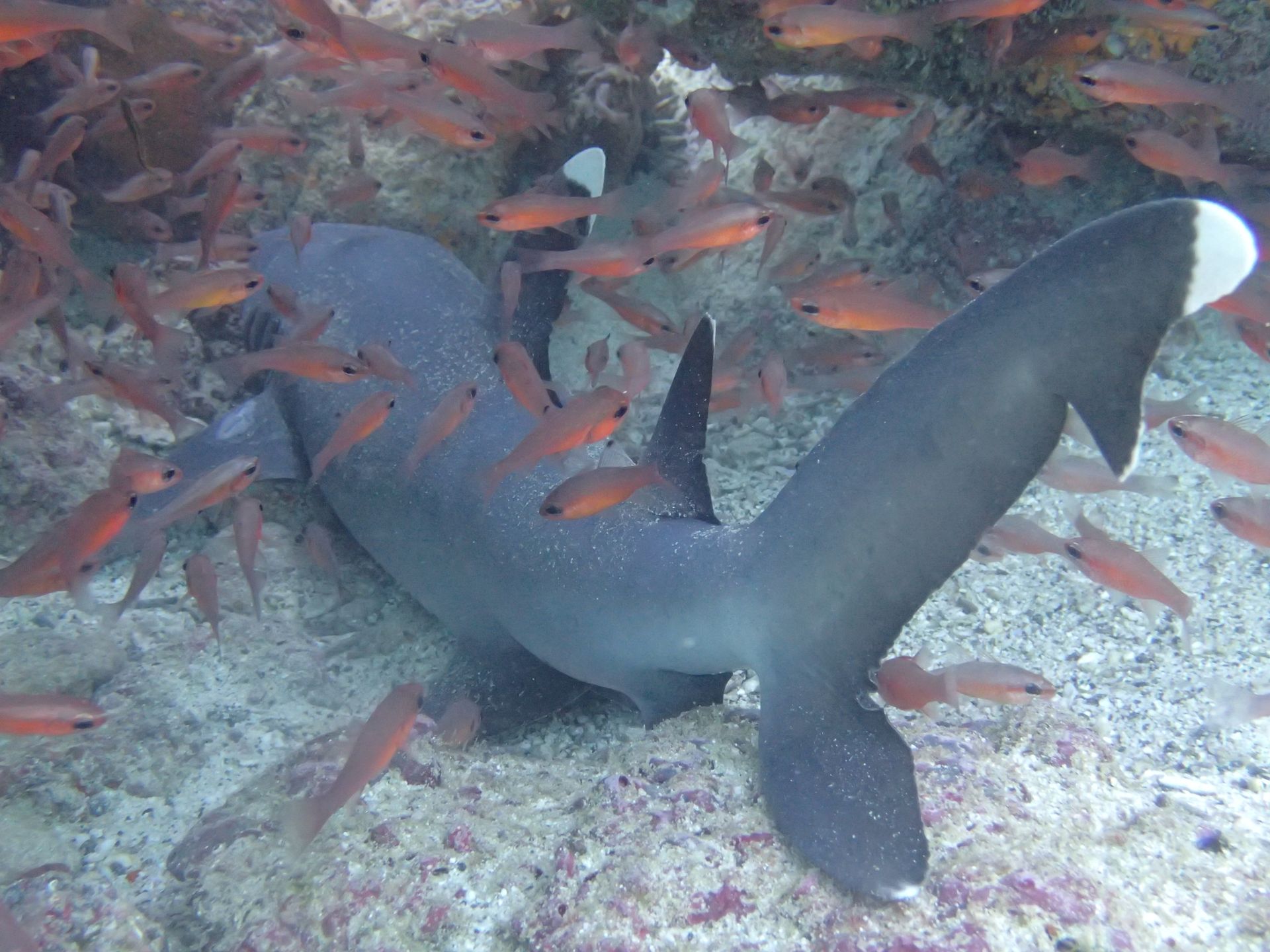
Our second dive takes us to a large rock formation called 'Daphne' that juts out of the sea. Blue-footed boobies, Galapagos frigatebirds, and albatrosses nest here.
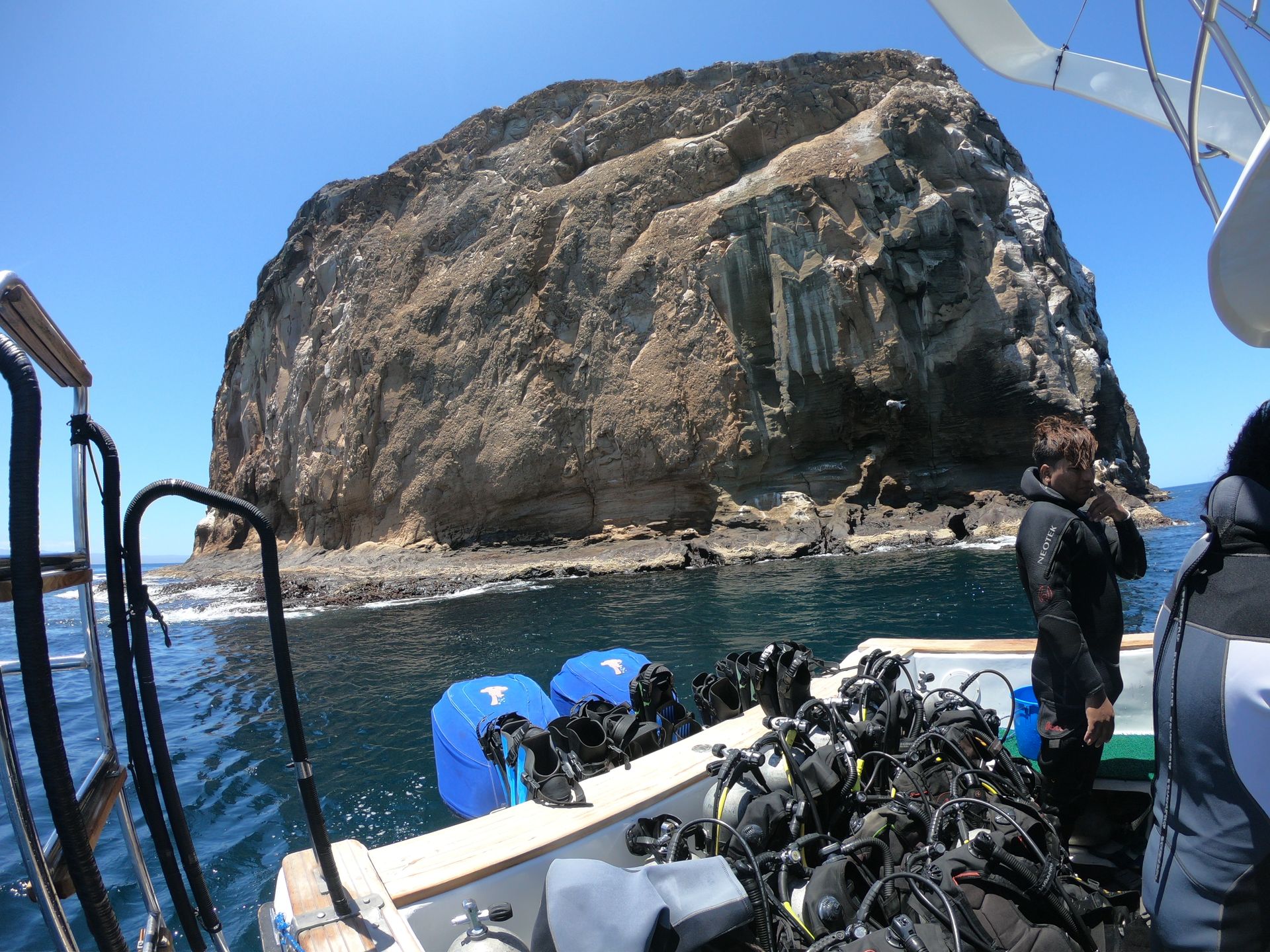
Our tour begins at the steeply descending wall. We pay a visit to a small cavern and try to venture to small 'mountains' of lava rock, but we have to turn back due to the strong currents. Luckily, we see a family of sea lions who are curious and come out toward us, showing off their skills. Enchantingly cute.
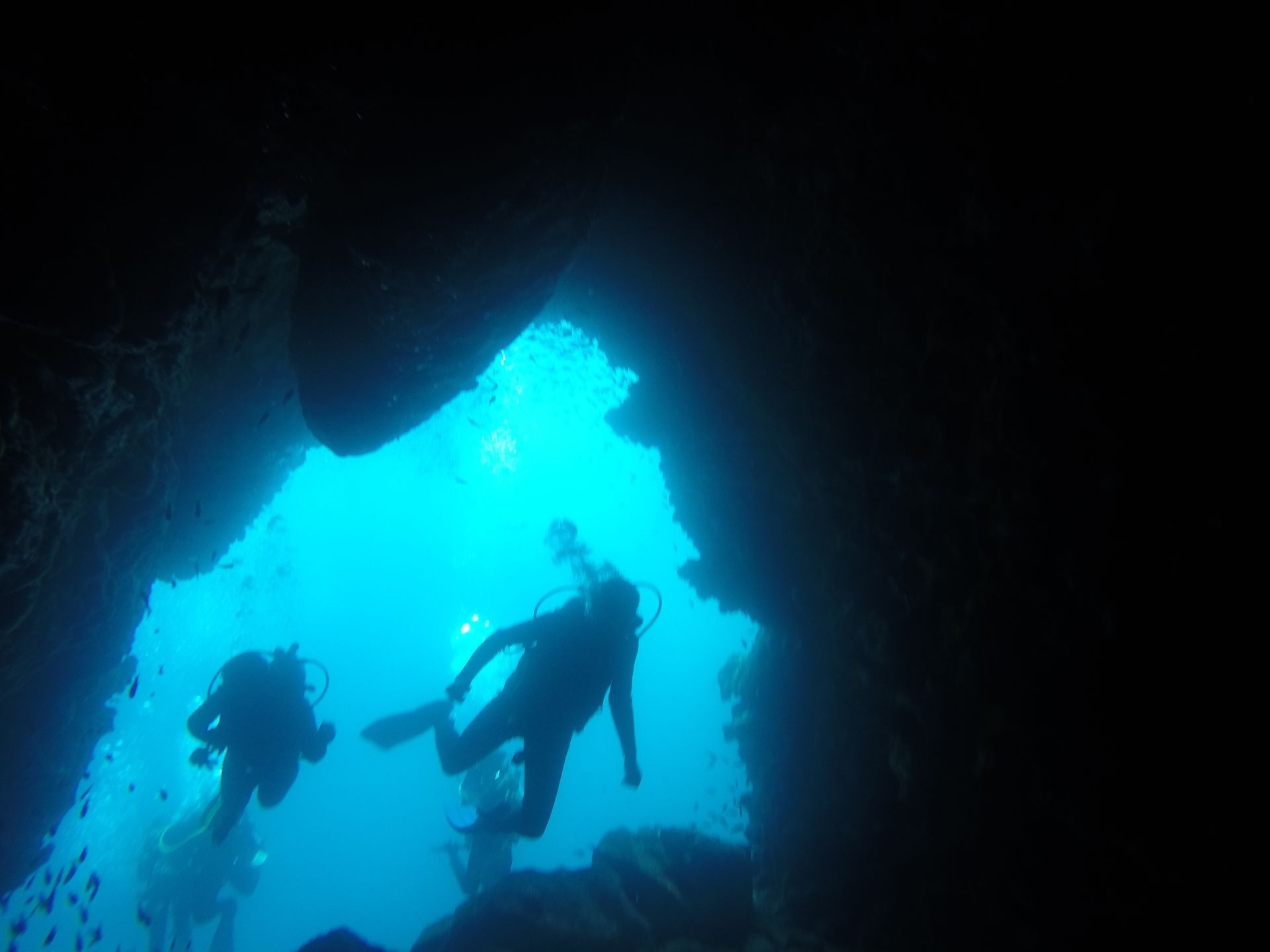
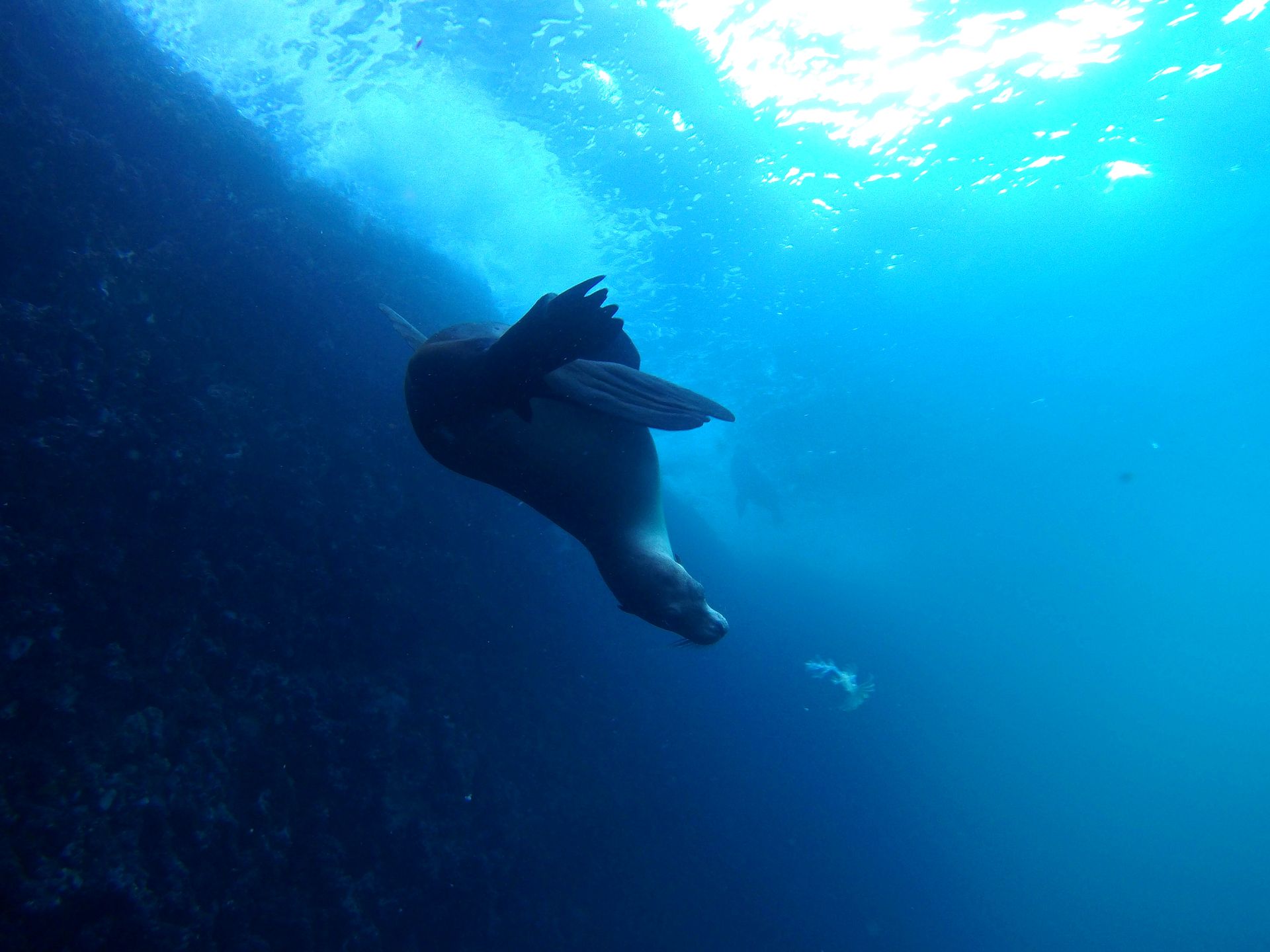
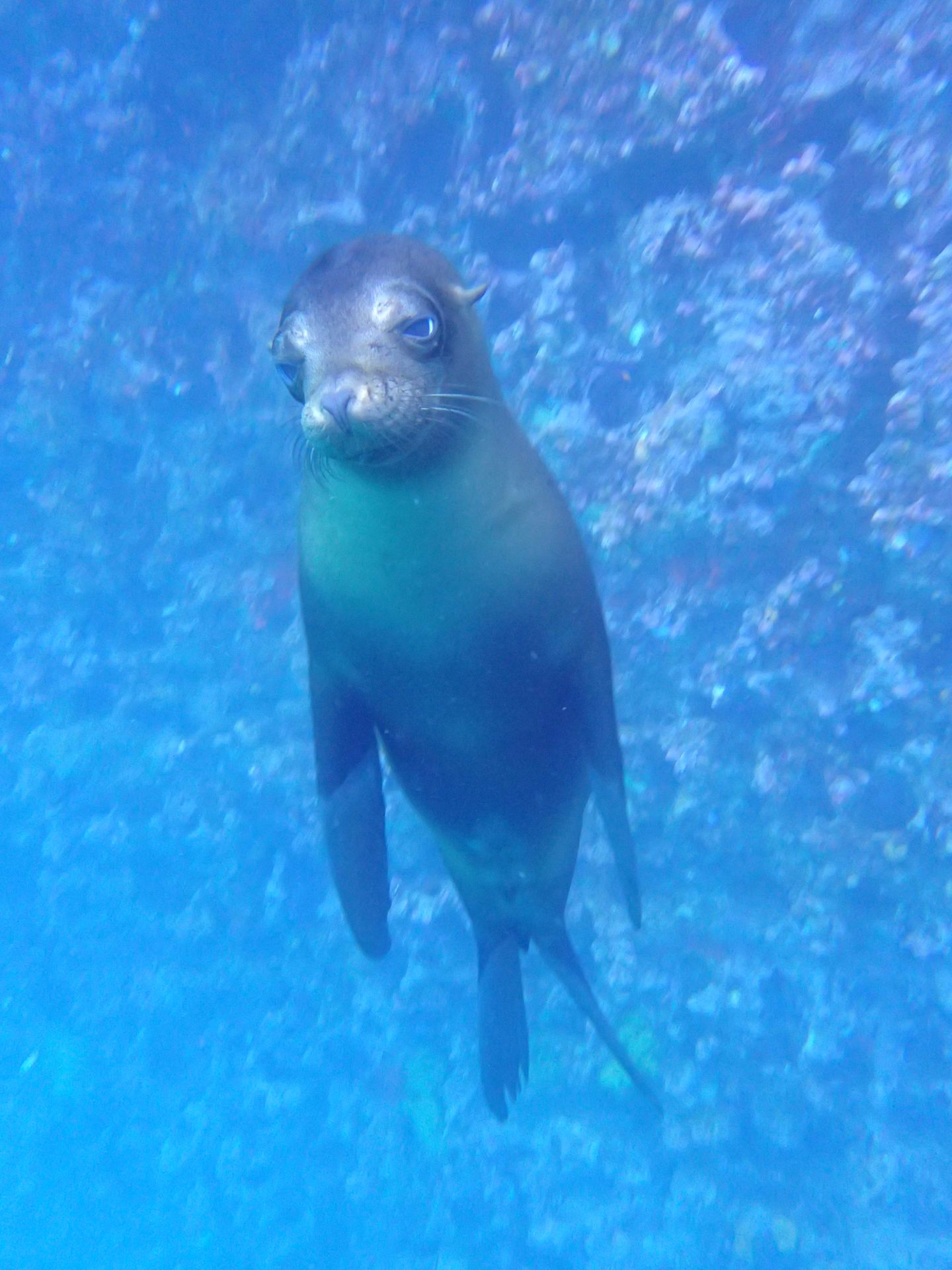
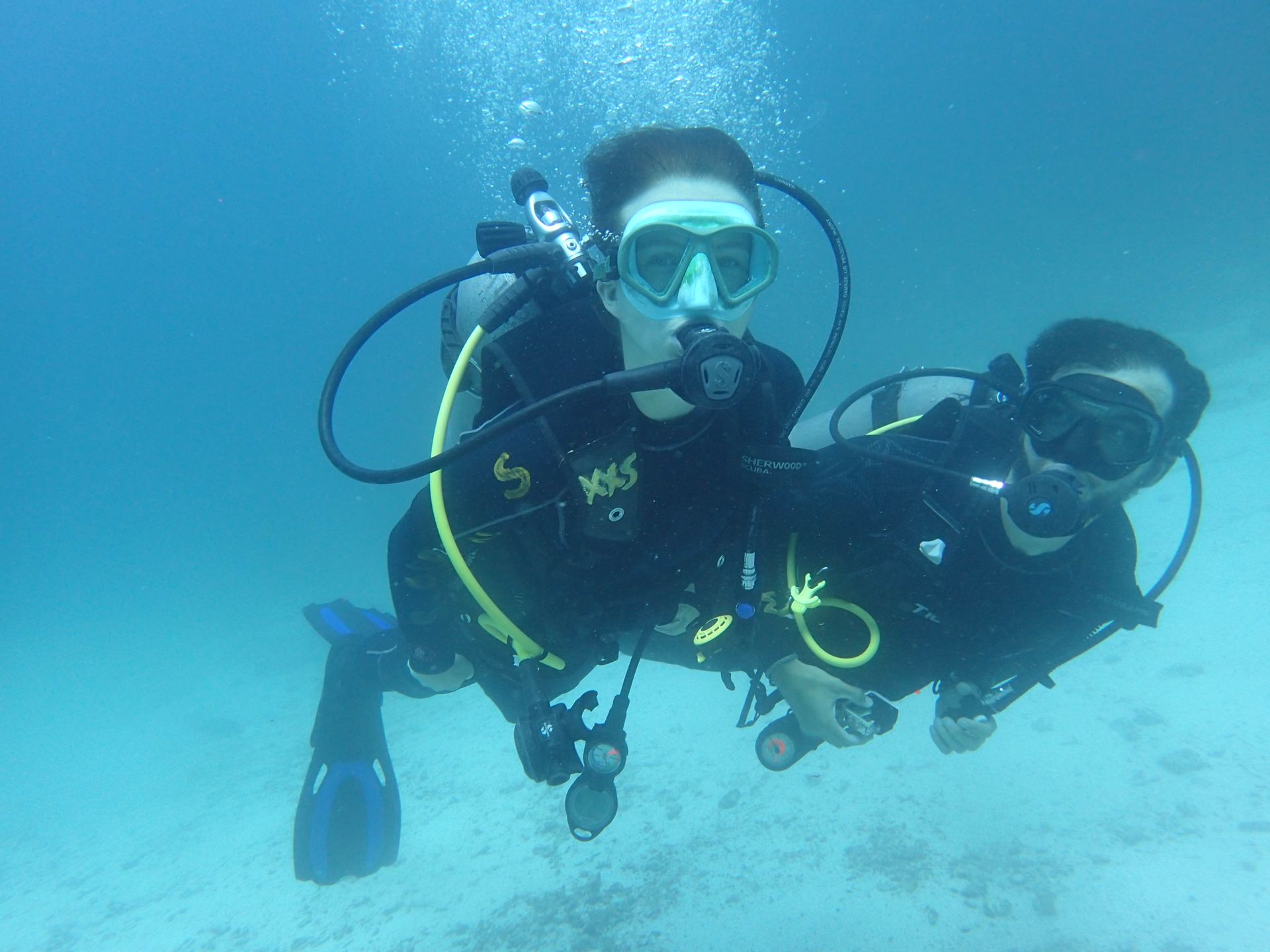
On the way back to the mainland, we enjoy a small snack and end an incredible day at sea with the pickup ride to Puerto Ayora.
In the evening, when we want to have our logbook entries stamped, the lower neighborhoods of the town experience a power outage due to the massive sound system next to the dive shop. The whole city has been celebrating for days. We have no idea what exactly, though.
Wɔ Nudɔdɔ na Nyadzɔdzɔgbalẽ
Ŋuɖoɖo
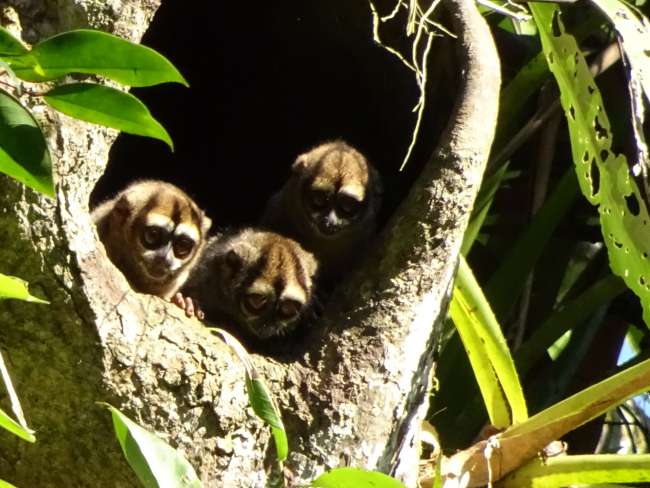
Mɔzɔzɔ ŋuti nyatakakawo Ecuador
